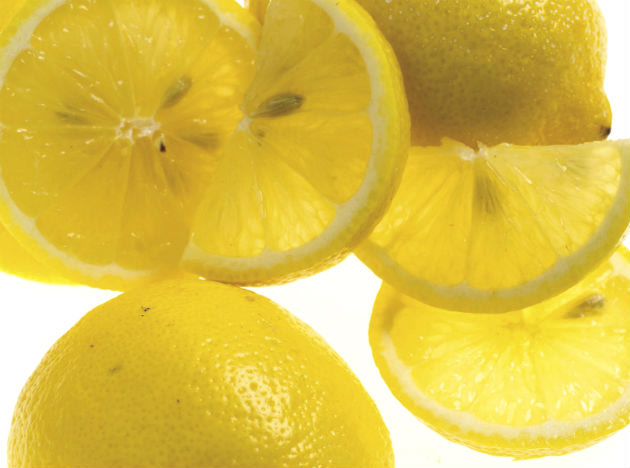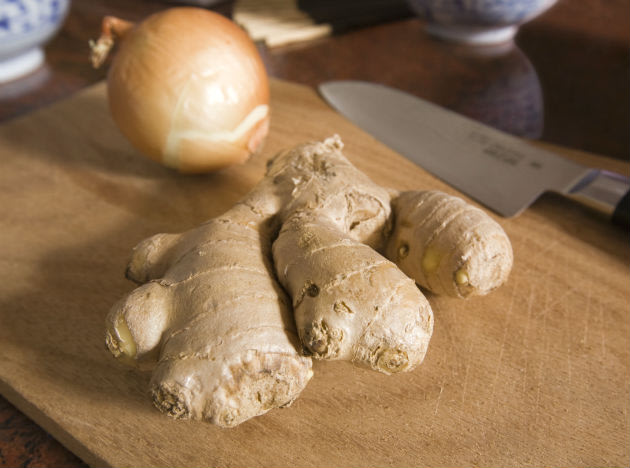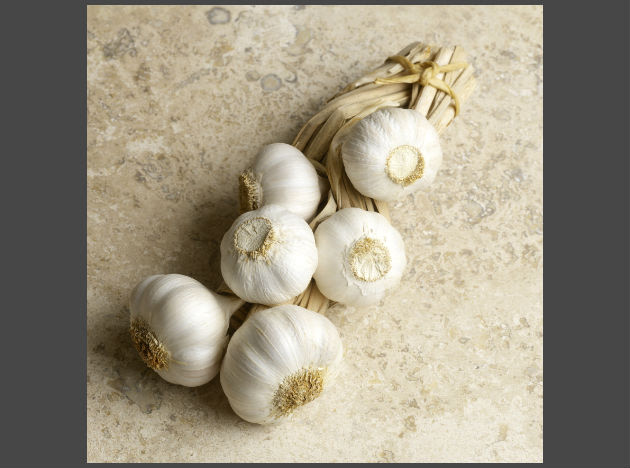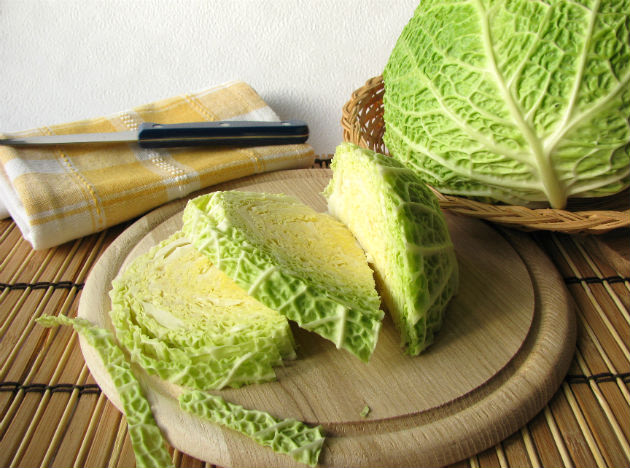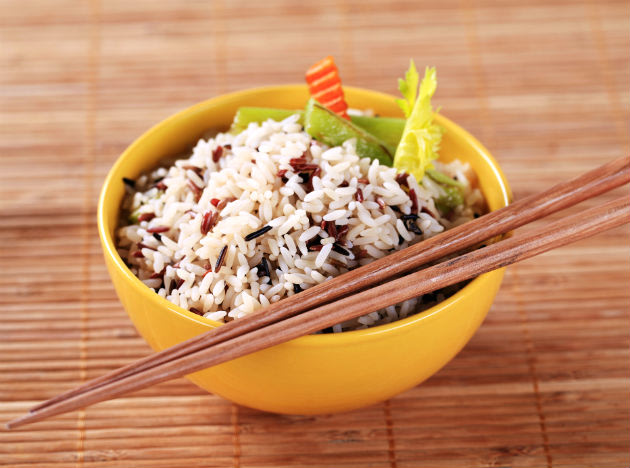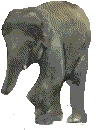29313 FRIDAY LESSON 874-THE TIPITAKA-Vinaya Pitaka-Sanghadisesa
|
017 |
Sanghadisesa 13 |
English |
from FREE ONLINE eNālāndā Research and Practice UNIVERSITY through http://sarvajan.ambedkar.org
Nation is Elephant
 of BSP!
of BSP! with Congress, other regional parties and BJP!
http://www.metta.lk/tipitaka/1Vinaya-Pitaka/index.html
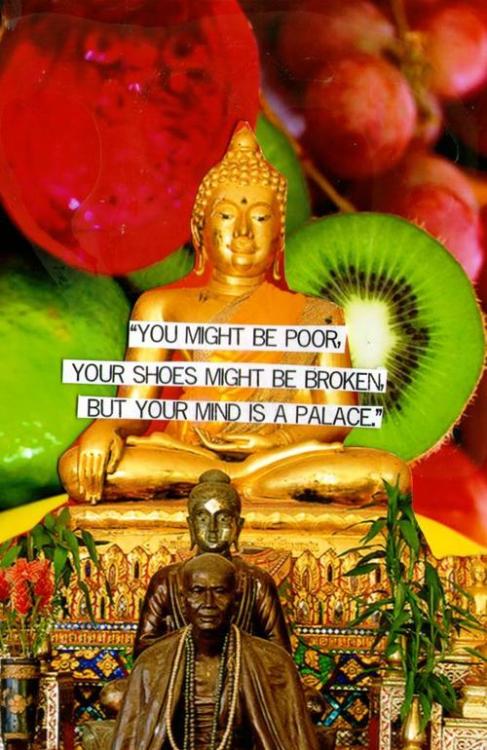
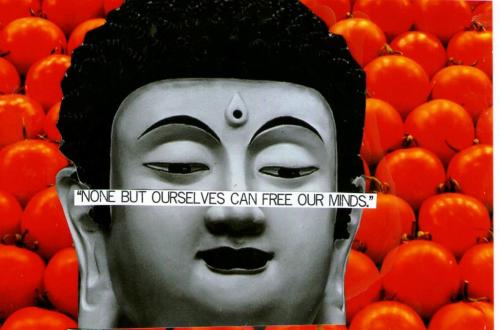
“Holding onto anger is like drinking poison and expecting the other person to die.”
| — | Buddha |
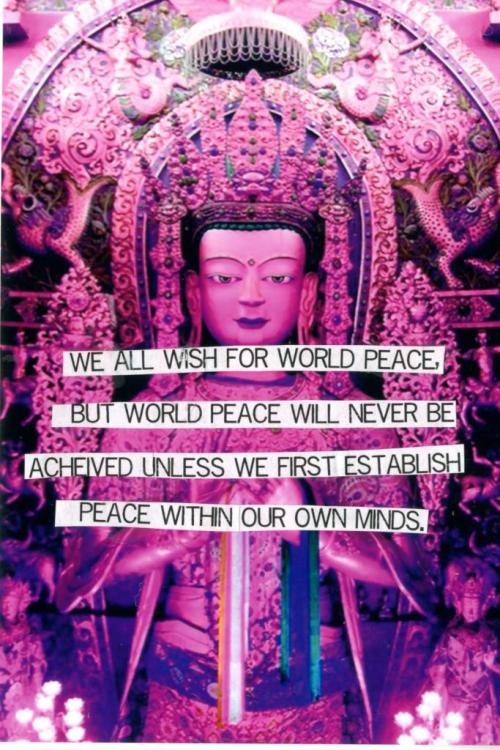
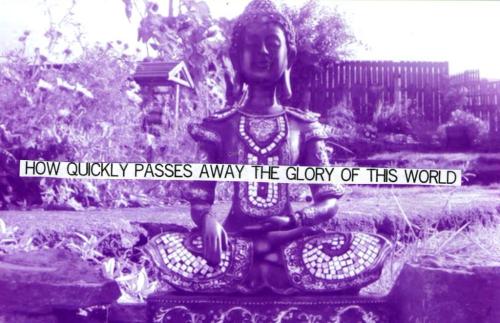
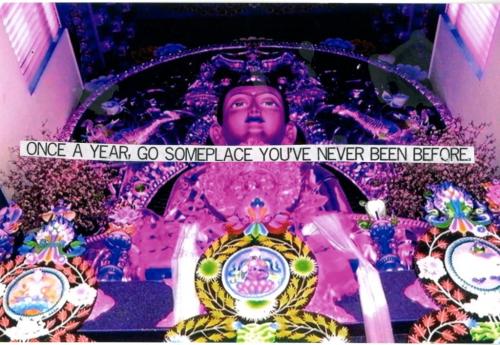
“One is not a great one because one defeats
or harms other living beings. One is so called because one refrains from defeating
or harming other living beings.”
~ The Buddha
“The eating of meat extinguishes the seed of
great compassion.”~
The Buddha
Mahaparini
bbana SuttaNIBBANA SUTTA: In no circumstances should
one eat meat or fish ” nor animal corpses, found in the jungle, for instance
” nor even accept from a donor a meal which contains an abundance of flesh-foods.
The very contact of other food with meat is deemed defiling and requires purification
of the food by water.
To put the flesh of an animal into one’s belly makes it a grave yard for cows, pigs, sheep,
fowl, and fish, to mention the most common.
Call Us By Our True Names
The last time you ordered me for dinner,
you forgot my true name.I am not a wonton.
Call me by my true name.
I am a pig.
I was killed unhappily,
even if you eat me happily.I am not a nugget.
Call me by my true name.
I am a chicken.
I was killed unhappily,
even if you eat me happily.I am not a burger.
Call me by my true name.
I am a cow.
I was killed unhappily,
even if you eat me happily.I am not a fillet.
Call me by my true name.
I am a fish.
I was killed unhappily,
even if you eat me happily.I am not foie gras.
Call me by my true name.
I am a goose.
I was killed unhappily,
even if you eat me happily.The next time you order me for dinner,
please call me by my true name… if you can…
which I hope you will not… anymore.
Shen Shi’an from moonpointer.comYogis should at all times avoid fish, meat, and so forth, should eat with
moderation, and avoid foods that are not conducive to health.
KamalashilaAdd some lentils to your life.
If you’re in a hurry,
canned lentils are a really convenient option.Cooking lentils from scratch is pretty simple, unlike beans and
chickpeas. No soaking required, just simmer in a pot like pasta until
the lentils are tender (about 15-20 minutes). Drain and use. Lentil bolognese, lentil tacos, lentil
burgers, lentil lasagna, lentil chili—there are endless possibilities.
Canned legumes.
Canned white beans or chickpeas will be equally as satisfying
and quick. Try
mashed chickpeas with Veganaise for a change.
Grate Brazil nuts, not cheese.
Consider Brazil nuts. Just finely grate your buts with a Microplane and
use anywhere you’d normally be reaching for the parmesan.
Make the most of mushrooms.
Just pop them in the oven
with a little garlic, thyme, and a generous drizzle of olive oil. Leave
for about a half-hour until tender and juicy.
Order the vegetarian option for a change.
‘Vegetarian’ option on restaurant menus can be surprisingly
delicious. Next time you’re out, why not give the veggie lasagna or the
veggie burger a go?
Try some tofu.
While tofu may have a reputation for being pretty bland, it’s
actually a great protein sponge for soaking up flavor. Try cubes of tofu
in your favorite curry or stew. Crumbled tofu tends to work well when you’ve had enough of lentils. Or try scrambled
tofu with a little curry powder and a softened onion.
Cream it with tahini.
Love creamy sauces? Then tahini, or ground sesame seed paste, could
be just the thing if you’re looking for a dairy-free alternative.
Drizzle this nutty sauce over roast vegetables or make a dressing by
combining equal amounts of tahihi, lemon juice, and water.
Go nuts.
Nuts are a great way to
add crunch and protein to veggie meals. They’re also a wonderfully
portable snack for vegetarians and carnivores alike.
Embrace the avocado.
Avocado salad
with a handful of nuts is one of my favorite vegan lunches. And don’t
forget guacamole.
Delve into dark chocolate.
Fortunatelythere’s a whole world of vegan-friendly dark chocolate to explore. You
could even get creative and serve a few different dark chocolates from
different regions or chocolates with different cocoa contents, and have a
little chocolate tasting party to end a meal.
Lentil ragù with zucchini ‘noodles’ recipe
Serves 2
Inspired by the good old family classic spag bol (or spaghetti
bolognese), these baked zucchini noodles are one of the favorite options
for gluten-free comfort food. It’s handy to have a mandoline or
vegetable peeler to get lovely fine noodles. You could serve the lentil
ragu with pasta if you prefer.
Feel free to add to the lentils – I’ve kept it super simple but a little garlic, onion, chilli or even basil would work.
- 2 zucchini, sliced into ribbons
- 1 can lentils (400g / 14oz), drained
- 4 tablespoons tomato paste
- grated brazil nuts, to serve
- salad greens, to serve
1. Preheat oven to 200C (400F).
2. Layer zucchini ribbons over a baking tray a few layers deep.
Drizzle with olive oil and bake for 10 minutes or until the zucchini is
no longer crunchy.
3. Heat 3-4 tablespoons olive oil in a medium saucepan. Add lentils and tomato paste and cook for a few minutes until hot.
4. Taste and season lentils, adding a little more olive oil or some butter if the tomato is too sharp.
5. Divide zucchini between two plates and top with lentils.
6. Serve with grated Brazil nuts on the side and a green salad
Season with soy sauce.
I recently read a theory the Buddhist monks invented soy sauce as a
way to convince the masses to become vegetarian.
Soy sauce also contains a generous slug of these tasty glutamates. So
it can be a great flavor booster in vegetarian dishes. Other sources
include tomato and mushrooms.
Buddhist Quotes
Meat-Eating &
Vegetarianism
“Being a vegetarian makes it easier for us to
increase our loving kindness and compassion.”
~ Zen Master Thich Thanh
Tu
Udumbara Flowers, Book II
“Every individual who eats flesh
food, whether an animal is killed expressely for him or not, is supporting the
trade of slaughtering and contributing to the violent deaths of harmless animals.”
~
Roshi Philip Kapleau
To Cherish All Life
“It
is a feeble compassion that pulls up short where self-interest begins.”
~
Norm Phelps
The Great Compassion: Buddhism & Animal Rights
“Rather
than encouraging apathy through submissive responses, let us deliver the message
loudly and clearly, that needles killing and suffering is wrong.”
~
Bodo Balsys
Ahimsa : Buddhism and the Vegetarian Ideal
“In his
final teachings before he physically left this earth, the Buddha foresaw that
a situation would arise in the future where those speaking in his name would pervert
his Doctrine and encourage meat consumption. So here, in this great Nirvana Sutra,
he lays down his last will and testament on the matter: in no circumstances should
one eat meat or fish ” nor animal corpses, found in the jungle, for instance
” nor even accept from a donor a meal which contains an abundance of flesh-foods.
The very contact of other food with meat is deemed defiling and requires purification
of the food by water. It is quite evident from all this that the Buddha in no
way condoned the eating of meat and was keen for his monastic and lay followers
to abjure the uncompassionate practice of meat eating and follow the pure path
of vegetarian Mahayana. In this, we would be wise and benevolent to follow him.”
-
Dr. Tony Page
Buddha - Self: The “Secret” Teachings of the Buddha
in the Mahaparinirvana Sutra, Vol. 2
“When we bring mindfulness to
the dinner table, it suffuses the rest of our life as well. We become more sensitive
to the well-being of animals, of the environment, and of ourselves and our families.
We are more aware of the choices we make in all areas of our life. We enjoy food
more, know that, while the obtaining of even plant foods necessitates some suffering,
the amount and kind of suffering is dramatically reduced when we leave meat off
our shopping lists and out of our kitchens. We become more aware of how meat consumption
feeds violence and anger.”
-
Kate Lawrence
Mindfulness in the Marketplace: Compassionate Responses to Consumerism
“When we have acquired an awareness of the fact that all beings have
been our mothers, and when this awareness is constant, the result will be that
when we see meat, we will be conscious of the fact that it is the flesh of our
own mothers. And, far from putting it in our mouths and eating it, we will be
unable to even take it into our hands or smell its odor.”
- Shabkar Tsogdruk
Rangdrol
Food of Bodhisattvas: Buddhist Teachings on Abstaining from Meat
“The Buddha’s teaching leads us to the realization that we must always
strive to harm no sentient being, human or nonhuman, whether or not it is in our
selfish interest to do so.”
~ Norm Phelps
The Great Compassion: Buddhism
& Animal Rights
“The eating of meat extinguishes the seed of
great compassion.”~
The Buddha
Mahaparinirvana Sutra
“Ultimately
the case for shunning animal flesh does not rest on what the Buddha allegedly
said or didn’t say. What is does rest on is our innate moral goodness, compassion,
and pity which, when liberated, lead us to value all forms of life. It is obvious,
then, that willfully to take life, or through the eating of meat indirectly to
cause others to kill, runs counter to the deepest instincts of human beings.”
~
Roshi Philip Kapleau
To Cherish All Life
“There are three ways
of killing that we, as Buddhists, have to restrain: either by directly killing,
indirectly killing, or rejoicing to see others be killed. Not only does this apply
to human life, it should be also extended to all living beings.”
~
Zen Master Thich Thanh Tu
Buddhism for Beginners
“The eating
of meat cannot in any way be considered to be helpful to the practice of the dharma,
neither can the slaughter of animals be considered to be consistent with the Buddhist
teachings of compassion (metta , ahimsa , and karuna ), of loving kindness, or
of the nature of the evocation of the enlightenment-mind. The cruelties associated
with the slaughter of the animal kingdom for human consumption, the pain, fear,
and distress suffered by the animals in the entire process of being fattened for
butchering, as well as the environmental disasters wreaked upon our planet through
the meat industry, are very well documented, and should be understood by all who
claim to be developing bodhicitta, or who wish to.”
~ Bodo Balsys
Ahimsa
: Buddhism and the Vegetarian Ideal
“Meat eating and a compassionate
religion do not go hand in hand.”
~ Bodo Balsys
Ahimsa : Buddhism and
the Vegetarian Ideal
“One of the greatest obstacles to the birth
of bodhichitta in our minds is our craving for meat.”
- Shabkar Tsogdruk
Rangdrol
Food of Bodhisattvas: Buddhist Teachings on Abstaining from Meat
“If there is no meat eater, there will be no animal killer”
-
Shabkar Tsogdruk Rangdrol
Food of Bodhisattvas: Buddhist Teachings on Abstaining
from Meat
“To put the flesh of an animal into one’s belly makes one
an accessory after the fact of its slaughter, simply because if cows, pigs, sheep,
fowl, and fish, to mention the most common, were not eaten they would not be killed.”
~
Roshi Philip Kapleau
To Cherish All Life
“We can do no greater
harm that to kill another sentient being. Killing is the ultimate expression if
indifference to the well-being of others. All, except in the most extreme circumstances,
cherish life. In the contemporary hell of the modern slaughterhouse animals cry
out and cower in terror when they realize that their life is nearing a premature
end. All beings, except in the most desperate circumstances, try to escape death.”
~
Bodhipaksa
Vegetarianism
“One is not a great one because one defeats
or harms other living beings. One is so called because one refrains from defeating
or harming other living beings.”
~ The Buddha
Dhammapada, Ch. 19 (15/270),
Max Muller, Trans.
“The Buddha said time and time again in the sutras
such things as: “My followers should give up all evil actions that directly
or indirectly injure others.” One may disregard his words; one may consciously
lead others to commit evil in provisioning oneself with meat. One may think, “There
are always skillful means in the sutras and tantras that counteract the evil so
that I shall still be pure of stain.” And one can let oneself off the hook
by telling oneself that there are substances to be placed into the animals’ mouths
and words that can be whispered in their ears and impressed upon their minds so
that they will not remain in the lower realms. But to do all this reveals a complete
failure to grasp the meaning of the Buddha’s teaching. It is a perversion of the
Dharma.”
- Shabkar Tsogdruk RangdrolFood of Bodhisattvas: Buddhist Teachings
on Abstaining from Meat
“Although one can sympathize with lay person
trying to break their attachment to a diet featuring meat, it is something else
again to extend those sympathies to monks, priests, and teachers. What business
have these latter to propound the Dharma when they possess neither the perception
nor compassion to see the connection between meat eating and the killing of harmless
animals, and when they lack the self-discipline to put Buddhist compassion before
the pleasure on their palates’ What right have they to wear the Buddha’s robes
when they won’t or can’t honor the bodhisattva vows they recite daily to liberate
all beings?”
~ Roshi Philip Kapleau
To Cherish All Life
“Buddhism
cannot be true to itself until Buddhists resolve their ambivalence toward nonhuman
animals and extend the full protection of their compassion to the most harmless
and helpless of those who live at our mercy in the visible realms.”
~
Norm Phelps
The Great Compassion: Buddhism & Animal Rights
“Buddhism
teaches the doctrine of karma, which is the law of cause and effect relating to
our actions. Karma means that whatever one sows, one reaps, be it good or evil.
The consequences of meritorious acts are always good. Evil acts, on the other
hand, ensure painful retribution. Buddhists are aware that we are constantly creating
new karma by our actions. One who believes in the law of causation, therefore,
will be careful not to cause pain to people, animals, plants, or the earth itself,
for harming them is simultaneously harming oneself.”
~ Ven. Sunyana Graef
The
Foundations of Ecology in Zen Buddhism
“Usually when people look
at the Buddhist precepts, they understand them in terms of human relationships
” Do not kill. Do not steal. Do not lie. Of course these are about human
relationships, but what do they mean in terms of the environment? There is a particular
kind of stealing that we do when we clear-cut forests, when topsoil is washed
into rivers. There is a particular kind of killing that we do when we wipe out
whole species. These precepts are taught not only as they relate to humans but
also how they relate to the environment, to the ten thousand things. Not only
the sentient, ‘feeling’ beings’deer, muskrat, beaver’ but to the rocks, trees
and river. All of it.”
~ John
Daido Loori Roshi
“Zen’s Radical Conservative,” Shambhala Sun, July
2001
“The beginning of mindful eating is the realization that eating
meat is not about the meat-eater; it is about the animals who are tormented and
killed.”
~ Norm Phelps
The Great Compassion: Buddhism & Animal
Rights
“Farmed animals are not future Buddhas donating their flesh
out of compassion for those of us who have developed a craving for it. They are
victims of our greed from whom we steal the most precious gift any of us has:
life.”
~ Norm Phelps
The
Great Compassion: Buddhism & Animal Rights
“Aware of the suffering
caused by the destruction of life, I am committed to cultivating compassion and
learning ways to protect the lives of people, animals, plants, and minerals. I
am determined not to kill, not to let others kill, and not to support any act
of killing in the world, in my thinking, and in my way of life.”
~ The
First Mindfulness Training, Thich Nhat Hanh
The Heart of Buddha’s Teaching
“Buddhism teaches us that all our suffering issues from our desires.
A desirous mind state generates harmfulness in all its forms, both toward others,
and toward ourselves. As has been witnessed throughout the millennia in both monastic
and strong lay practice in several traditions, when one goes without meat or fish,
one may well find oneself released from the desire for these foods (although not
instantly, of course) and one may even “soften” to the suffering of
all creatures through a closer identity with them. Vegetarianism can be an aid
to learning to live a life of actions taken outside the realm of doing harm. It
is hard to say, in fact, which may come first, and which way the cycle may spiral
” non meat eating leading to sympathy for the plight of animals, or growing
sympathy arising from deep and dedicated spiritual practice leading to a gathering
unwillingness to cause harm by supporting animal slaughter. But it becomes clear,
along the road to vegetarianism, that the less meat one desires, the closer one
feels toward all life, the more harmless one feels, and the more aware of the
suffering of the helpless beasts one is. If, and possibly only if, vegetarianism
is supported by involved and sincere spiritual practice, it serves to soften us
up. It actually (forgive me) tenderizes us. “
~ Sensei Sevan Ross
Vegetarianism
and Zen Practice
“The perpetuators of the Buddha dharma have a moral
responsibility to the rest of humanity to be at the forefront of the change away
from blood-letting and killing, and not surreptitiously fostering it because of
their lack of will to change their habits or mode of thinking concerning the animal
kingdom.”
~ Bodo Balsys
Ahimsa Buddhism and the Vegetarian Ideal
“If a man can control his body and mind and thereby refrains from eating
animal flesh and wearing animal products, I say he will really be liberated.”
~
The Buddha
From the Surangama Sutra
“People
who eat meat often make the excuse that it is natural to do so, that people were
meant to eat meat. They promote this idea, and then freely indulge in taking the
lives of their fellow creatures, thereby creating extensive hatred and enmity-karma.
“
~ Great Master Lianchi Zhuhung
On Stopping Killing!
“Buddhism
regards all living creatures as being endowed with the Buddha nature and the potential
to become Buddhas. That’s why Buddhism teaches us to refrain from killing and
to liberate creatures instead.”
~ Venerable Master Hsuan Hua
Liberating
Life
“When virtuous mental attitudes, like mindfulness, respect,
and compassion, are invoked to justify nonvirtuous acts like hunting, fishing,
and eating animal products, the mental attitudes are insincere. They are self-deceptions
that we create to justify habits that in our hearts we know are wrong, but to
which we have become attached.”
~ Norm Phelps
The Great Compassion:
Buddhism & Animal Rights
As a man values his life,
So do animals
love theirs.
Releasing life accords with the mind of heaven;
Releasing life
agrees with the teaching of the Buddha.
Releasing life unties the snare of
hatred;
Releasing life purifies the taint of sin.
Releasing life enables
one to escape the three disasters;
Releasing life enables one to be free from
the nine kinds of untimely deaths.
Releasing life enables one to love long;
Releasing
life enables one to rise high in an official career;
Releasing life enables
one to gave many children;
Releasing life enables one to have a prosperous
household.
Releasing life dispels anxieties and worries;
Releasing life
reduces sickness and pain.
Releasing life is the compassion Kuan-yin;
Releasing
life is the deed of P’u-hsien.
By releasing life one comes to realize the truth
of no birth.
By releasing life one ends transmigration.
~ Chu-hung
Releasing
Life, on the act of buying and releasing animal meant for slaughter (as cited
in Religious Vegetarianism)
“These days many voices proclaim the
sanctity of human life. Human life should of course be valued highly, but at the
same time the lives of other living beans should also be treasured. Human beings
snatch away the lives of other creatures whenever it suits their purposes. The
way of thinking that encourages this behavior arises from a specifically human
brand of violence that defiles the self-evident laws of the universe, opposes
the growth of the myriad things in nature, and destroys feelings of compassion
and reverence arising from our Buddha-nature. In view of such needless destruction
of life, it is essential that laymen and monks together conscientiously uphold
this precept.”
~ Hakuun Yasutani-roshi on the Precept of Non-Harm
As
quoted in To Cherish All Life
“Perhaps it is part of being human
to question who and what we are. Unfortunately, because we rely almost exclusively
on our senses, the harder we look, the more we misinterpret what we see. We believe
on the one hand that we are an insignificant dot in the universe, separate from
all other humans, much less the natural world. But we also believe that we are
the most highly evolved organism in creation, entitled to use whatever we can
grasp for our own ends.
“Buddhists have a different view of humanity.
In terms of their psycho-spiritual development people stand about midway between
Buddhas and amoebas. However, on an absolute level, people, Buddhas, amoebas,
dogs, streams, and mountains are one and the same. Buddhism addresses the apparent
disparity between what we see and what we actually are. And it does so by delving
into the roots of what it means to be human.”
~ Ven. Sunyana Graef
The
Foundations of Ecology in Zen Buddhism
Sayings of the Buddha from the
Lankavatara Sutra:~
“For innumerable
reasons, Mahamati, the Bodhisattva, whose nature is compassion, is not to eat
any meat.”
~ “For fear
of causing terror to living beings, Mahamati, let the Bodhisattva who is disciplining
himself to attain compassion, refrain from eating flesh.”
~ “Meat
is not agreeable to the wise: it has a nauseating odor, it causes a bad reputation,
it is food for the carnivorous; I say this, Mahamati, it is not to be eaten.”
~
“From eating meat arrogance is born, from arrogance erroneous imaginations
issue, and from imagination is born greed; and for this reason refrain from eating
meat.”
~ “Meat-eating is condemned by the Buddhas, Bodhisattvas,
and Sravakas; if one devours meat out of shamelessness he will always be devoid
of sense.”
~ “Therefore, do not eat meat which will cause terror
among people, because it hinders the truth of emancipation; not to eat meat? this
is the mark of the wise.”
“A person of the deepest spirituality
will also have a tender concern for every aspect of creation. Such an individual
could no more harm a living creature than he or she could harm himself or herself.
Buddhist scriptures contend that a bodhisattva will not even walk on grass lest
it be harmed. Indeed, the first Buddhist precept is the admonition not to kill,
but to cherish all life. This attitude is especially important with respect to
food, since anything we eat must die to sustain us. Still, it is less destructive,
on a relative level, to take the life of a carrot or an apple than to take that
of a more highly evolved form of life, such as a cow, a chicken, or a lobster.
Too, from a purely ecological point of view, it is less detrimental to the environment
to eat as low as possible on the food chain. All this explains why many Buddhists
are vegetarians.”
~ Ven. Sunyana Graef
The Foundations of Ecology in
Zen Buddhism
“It is sad to see how many American Buddhists are managing
to find a self-satisfying accommodation to eating meat. Some airily cite the doctrine
of Emptiness, insisting that ultimately there is no killing and no sentient being
being killed. Others find cover behind the excuse that taking life is the natural
order of things and, after all, “the life of a carrot and that of a cow are
equal.” The truth is, though, that as humans we are endowed with discriminating
minds that we can use to educate ourselves to the implications of our volitional
acts and to choose those foods that minimize suffering to living beings.”
~
Bodhin Kjolhede
“A Debate on Food and Practice,” Tricycle, Winter
1994
“This precept [of non-harm] includes non-killing of beings like
ants, mosquitoes, and cockroaches.”
~ Ven. U. Vimalaramsi
Comments
from his translation of the Anapanasuti Sutta
“When we hunt or fish,
we deliberately kill a defenseless being who wishes us no harm. This is a direct
violation of the First Precept. It is absolutely forbidden to Buddhists. As to
eating meat, we know that the only way we can obtain it is for an animal to be
killed. Therefore, when we eat meat, it is our intent that an innocent animal
should die to satisfy our addiction to flesh. And that underlying intention, no
matter how well hidden behind a smokescreen of rationalizations will block the
growth of compassion and create negative karma.”
~ Norm Phelps
The
Great Compassion: Buddhism & Animal Rights
“Kill and eat is not
a Buddhist principle.”
~ Senaka Weeraratna
From “Export of meat
products from Sri Lanka harms country’s Buddhist image,” Buddhist News Network.
“Veganism is simply letting compassion guide our choice of food. As such,
it is a basic Buddhist practice that ought to be expected of everyone who takes
refuge vows.”
~ Norm Phelps
The Great Compassion: Buddhism & Animal
Rights
“Sincere practitioners feel a natural, visceral compassion
for the goats and sheep as if they were their old mothers. They will have nothing
to do with killing them for the sake of meat. On the contrary, they save life
eagerly; they ransom animals set aside for slaughter and release them. Otherwise,
it is like trying to punch someone who isn’t there. Showing compassion for animals
after they have been killed and the meat is being eaten? reciting mantras for
the animal?s sake? is nothing but a silly game.”
-Shabkar Tsogdruk Rangdrol
Food
of Bodhisattvas: Buddhist Teachings on Abstaining from Meat
“An understanding
and acceptance of the theory of evolution is important because without that acceptance
there is a perception of a great separation between humans and animals which simply
is not true.”
-David N. Snyder, Ph.D.
Right Understanding
“As
the crisis of feeding the world’s population grows, breeding of animals for human
consumption becomes less acceptable” out of compassion for the suffering
of animals and the awareness that it is a grossly inefficient use of water and
grain. A new relationship with the animal kingdom is part of our changing perception
of the Earth. Animals are part of us, and part of our practice.”
~ Allan
Hunt Badiner
Engaged Buddhist Reader
“The first precept in Buddhism
is “Do not kill.” This precept is not merely a legalistic prohibition,
but a realization of our affinity with all who share the gift of life. A compassionate
heart provides a firm ground for this precept.”
~ Chatsumarn Kabilsingh
Engaged
Buddhist Reader
“Human beings also kill animals not just for food.
They take the animal’s skin to make shoes and hats and clothes. And even that
is not enough. They take these animal’s bones to make necklaces or buttons or
earrings. In short, they kill many, many animals in order to sell the animal parts
for money. Because of these desires and this strong animal consciousness, human
beings fight with each other, and destroy nature. They do not value life. So now
this whole world has many problems; problems with the water, problems with the
air, problems with the earth and food. Many new problems appear every day. These
problems do not happen by accident. Human beings make each and every one of these
problems. Dogs, cats, or lions, or snakes - no animal makes as many problems for
this world as human beings do. Humans do not understand their true nature, so
they use their thinking and desire to create so much suffering for this world.
That is why some people say that human beings are the number one bad animal in
this world. So human beings must soon wake up and find their original seeds, their
original nature.”
~ Zen Master Seung Sahn
The Compass of Zen
“As
a Buddhist, we practice so as to benefit self and others hence we do the six-syllable
mantra practice. However, when we eat meat be it chicken, pork, fish or eggs in
our daily lives, we are creating immense negative karma. If on the one hand, we
chant the mantra and on the other hand, we eat the meat of mother sentient beings,
then our words and actions do not tally with one another. We are not doing as
we preach. Can this be considered as loving kindness and compassion towards sentient
beings” Is this doing good and abstaining from evil” We take refuge
in the Buddha because his teachings could benefit all sentient beings. As a Buddhist,
we should understand the essence of the Buddha’s wisdom and teachings, which is
to do good and abstain from committing evil deeds. Abstaining from evil means
that we have to keep our precepts. Hence we should not take meat. When we are
sick, old or near death, we would go to the doctor, we would practice and do anything
possible to extend our lifespan. However, when we take meat, we are killing sentient
beings that are healthy. How great is our compassion and loving kindness if we
treat sentient beings in such a manner? We should abstain from killing because
it generates immense negative karma. Instead, we should develop loving kindness
and compassion towards all sentient beings.
“In countless rebirth, all
sentient beings have been our parents. When we took rebirth in the human realm,
we had human parents; when we took rebirth in the animal realm, we had animal
parents and so forth. Samsara is such. We need to generate a sense of gratitude
towards our parents in this lifetime and those of our past lives. Hence, we should
be vegetarians and abstain from taking meat. In such a way, we would do good and
give meaning to our practice. By doing so, our practice of the six-syllable mantra
would be able to benefit ourselves and others, and also aid in the flourishing
of the Dharma. There are some people who say that their doctor has advised them
against becoming vegetarians, as they would suffer from malnutrition. This is
a sign that the determination of these people is not strong enough. For if one
has strong determination, one would avoid doing evil deeds at all cost and under
any circumstances. Hence in our daily lives, we should stop committing the negative
deed of eating meat. On this basis, the merits generated from our refuge and practice
of the six-syllable mantra would be inconceivable. We should try to change our
lifestyle towards vegetarianism. We would certainly face difficulties in becoming
full vegetarians. However, when such obstacles arise, we should remember how every
sentient being had at one point or another been our parents. When we remember
this, then we would not take meat just as we would not eat the meat of our parents
of this lifetime.”
~ His Eminence Druwang Konchok Norbu Rinpoche
100
Million Six-Syllable Mantra Retreat
“Put your picket signs up if
you are true compassionate Buddhists trying to walk the Bodhisattva path; and
help end the war against animals. A little one sided war of course, but many forget
that it is actually a war and that the animals are the innocent casualties of
war. But there is no Geneva convention as to how to best look after these prisoners
of human predatoriness, so people continue to entertain and feed themselves on
the slaughtered bodies of those whim they have captured and then bred for their
gluttony.”
~ Bodo BalsysAhimsa Buddhism and the Vegetarian Ideal
“The
member of Buddha’s order “should not intentionally destroy the life of any
being, down even to a worm or an ant.”
~ Mahagga (khandhaka 1, ch. 79)
“Whether now any man kill with his own hand, or command any other to
kill, or whether he only see with pleasure the act of killing - all is equally
forbidden by this law, and many other things which cannot be described one by
one.”
Sha-mi-lu-I-yao-lio
“To save countless beings,
Not
omitting even the least in his intention.”
~ Ph’u-king (kiouen 2)
“The birds and beasts and creeping things?
“tis writ”
Had
sense of Buddha’s vast embracing love,
And took the promise of his piteous
speech.”
~ Sir Edwin ArnoldLight of Asia, bk. 8
“Be kind
to all that lives.”
~ Fo-sho-hing-tsan-king (v. 2, 024)
“I
love living things that have no feet “four-footed creatures, and things with
many feet” May all creatures, all things that live, all beings of whatever
kind, may they all behold good fortune.”
~ Cullavagga (khandhaka 5, ch.
6)
“Every variety of living creature I must ever defend from harm.”
~
Ta-chwang-yan-ling-lun (sermon 62)
Buddhist Folktales and Parables
The Father
A young single father had a son that he loved more than anything in
the world. One day while the father was away, some plunderers burned
down most of his village and kidnapped the little boy.
When the father came back, he mistook one of the burnt corpses as his
son. Completely devastated, he had the body cremated, and put the ashes
in a bag that he always carried around.
Days later, his son escaped from the plunderers, ran back home, and
knocked on the door of the house that his father rebuilt. His father
asked who it was. When the boy answered, “It’s me, your son—please let
me in,” the father, who was still holding the bag of ashes, assumed it
was some other boy playing a cruel joke. “Go away,” he shouted back.
The boy continued to knock and plead to the father, but the father
continued to tell him to leave. Finally, the boy left and never came
back again.
And just like that example, if a person is intently holding to an
idea as the absolute and unmodifiable truth, he won’t be able to open
the door and accept the actual truth when it comes firsthand knocking on
his door.
Salt
A man invited a friend over for dinner one night—but while his friend ate, he did not seem to be enjoying the food.
The man offered him some salt, and the friend sprinkled a little on
the food, ate it, and thought, “This salt really makes the food taste
good. And if just a little salt makes it better, then a lot of salt will
only improve it more.”
He then proceeded to pour a few tablespoons of salt directly into his mouth—and seconds later, he spit it out in disgust.
The man in this story is comparable to people who think that since
moderate eating and drinking has benefits, extreme deprivation must be
even better. They end up starving and depriving themselves, and soon
find out that they have veered from the right Way.
Ten Dollars
One day, a merchant set out on a short trip in order to collect a
debt of ten dollars from a man living several miles away. After paying a
boatman five dollars to take him across a river, the merchant was uable
to find the man, and had to pay another five dollars to make his way
back home. He spent ten dollars and a few hours to collect a ten dollar
debt—and he ultimately ended up empty-handed.
This is analogous to people who obsessively pursue a petty gain, and
end up neglecting much more important matters and periling themselves in
many ways.
A Herd of Cows
A man had a herd of 250 cows and took great care looking after their
welfare. One day, however, a tiger ate one of them—and when the man
noticed this, he thought, “I’ve lost one of my cows, and my herd is
incomplete. What’s the point of having all these other cows?” And with
that, the man drove all the cows off a cliff and to their death.
He is like a person who, after breaking just one precept of
righteousness, thinks, “I’ve broken one, so I might as well abandon them
all.”
Converting Inventory
The son of a wealthy man found some valuable aloe wood at the bottom
of a river, and took it to sell at the bazaar. However, his price was
too high, and he found no buyers. Growing discouraged and desperate, he
noticed a nearby charcoal seller doing brisk sales, and he decided to
burn his aloe wood into charcoal. He managed to sell the charcoal
easily, but the money he got for it was nowhere near the value of the
aloe wood.
This is similar to how some people practice diligently at first to
achieve spiritual goals, but soon grow discouraged at some obstacle, and
choose to abandon great things and give up a great deal in order to
accept a trivial amount.
Trying the Remedy
After being whipped by the King, a man tried treating his lash wounds
by rubbing horse feces on them. Someone else noticed this, and
excitedly thought, “I have discovered a magnificent way to heal wounds.”
He went to his home and ordered his child to whip him severely on the
back—and after the child obeyed, the man happily tried out his newly
discovered remedy.
The King’s Decree
A King had citizens living in a village ten miles from his palace.
This village had fantastic spring water, and the King ordered the
villagers bring him some every day.
The villagers, however, were greatly annoyed and inconvenienced
having to make the lengthy trip. One day, a village leader said, “I’m
going to go to the King and ask him to issue a decree stating that from
now on, the distance from our village to the palace will only be one
mile. This will make our task much easier.”
Afer hearing the man’s request, the King gladly complied and issued
the decree—much to the delight of the villagers. One of them, however,
remarked, “What difference will that make? The distance will remain the
same—only the name will change!”
Nevertheless, the villagers still believed in the King’s decree.
People who cling too much to names and words often act like those villagers.
Man Yells at Water
A thirsty traveler spotted a wooden conduit with water running in it,
and drank until he was satiated. After finishing, he held up his hand
and announced to the water, “I’m done drinking. Stop running.” As the
water continued to run, the man grew angry and yelled, “I’m done
drinking, and I just told you to stop! Why are you still running?”
A bystander noticed this and remarked, “Why don’t you just leave the water instead of yelling for it to stop flowing?”
The man’s behavior is similar to people who, rather than doing what
is necessary, just verbally demand that something happen, and then
become angry when it doesn’t.
Lots of Work, Little Reward
A man spent months carving and polishing a large rock into a toy cow.
He did an enormous amount of work, yet it resulted in very little.
This is analogous to people who work hard merely to excel others in
fame. If they were motivated by the supreme fruits instead of fame, the
payoff for their efforts would be much greater.
Spotting Gold
A man mistakenly thought he spotted gold in a pond, and dove in to
retrieve it. After coming up empty handed and stirring up the water’s
mud, he got out of the pond and waited for the mud to settle. When it
did, he once again saw what he thought was gold, and dove in to get it.
He got out and sat by the pond for a few minutes, and then his father came walking by and said, “Why are you all wet and tired?”
The man replied, “ I spotted gold in the lake, and I dove in to get it, but all to no avail.”
The father looked at the pond, which had settled down again, and saw
the gold, but could tell that it was actually a reflection of gold on a
tree behind them. He turned around and looked at the tree, and the gold
was there. He showed it to his son, and the son got the gold.
The Fast Eater
The day after their marriage, a newlywed couple was eating a meal
together—and for no apparent reason, the husband was wolfing down his
food like there was no tomorrow.
One day, his wife said to him, “My beloved husband, no one is going to steal your food. Why don’t you slow down and enjoy it?”
The husband snappily replied, “That’ts my secret. I can’t tell you.”
Upon hearing this, the wife became even more curious about her
husband’s bizarre eating habits, and asked once again in an affectionate
tone. Finally, the husband replied, “I eat like this because my family
has eaten quickly for as long as we can trace back our history. I’tm
just following our custom.”
Many people act like this man. Rather than considering whether what
they’re doing is right or wrong, they simply say, “This is how our group
has done things for as long back as we can remember, and that is why we
do it now,” and they persist in these actions without modifying them,
all the way until their death.
Man Hides Rice in His Mouth
A man visited his wife’s family, and noticed that they were hulling
rice. The man, greatly desiring to eat some, waited until they left the
room, and then grabbed some and put it in his mouth.
But seconds later, his wife came back in the room. She asked him
something, and the husband, with the rice still in his mouth, did not
answer because he did not want to be embarrassed and have the rice
discovered.
Noticing that her husband was not replying, the wife became confused
and concerned, and she examined his cheeks. In a panic, she yelled out
to her father, “My husband has some kind of disorder! There are strange
bulges in his mouth, and he can’t speak!”
The father brought over a doctor, who examined the man and remarked,
“This is a very dangerous condition, and we must take action immediately
and cut this man’s cheek open.”
So he did, and then everyone watched as the rice fell out of the man’s mouth.
Like this example, people often do wrong actions, and then go to such
greeat lengths to hide them that they often put themselves in even
worse situations, and stubbornly persist in the wrong no matter how much
misfortune it results in. They are like the man in this story who went
as far as let his cheek be cut open because he was trying to avoid some
shame—and at the end, his wrong action was revealed anyway.
Wheat Growing Technique
A man observed a farm where wheat was growing very well. He went to
the farmer and asked what he did to make the wheat grow so abundantly,
and the farmer replied, “I leveled the land and added water and manure,
and it’ts been growing like this since them.”
So the man went home eager to duplicate the farmer’s method, and put
water and fertilizer on the field. He also began carefully sowing the
seeds, but as he did, he noticed his feet stepping on the ground, and he
feared that it would damage the seeds.
The man became concerned, and decided to hire four men to hold him in
a chair while he sowed the seeds from the air. The new plan, however,
had its own drawbacks, and the four men holding the chair ended up
stepping on the ground four times as much as the man did previously by
himself.
This man’s example is like when people are on the right way, but then
overcomplicate things and invite wrong actions into their lives. This
is just like the man who exchanged the trampling of two feet for eight
feet.
Eye Pain
A woman was talking to her friend, and mentioned that she had been experiencing pain in her eyes.
“Are they bothering you right now?” asked the friend.
“Yes,” the first lady replied.
The friend thought for a moment and then remarked, “Well, I guess a
person’s eyes will end up hurting at some point during her life. My eyes
aren’t bothering me right now, but I don’t want them to bother me
later, so I’ll just gouge them out.”
A bystander heard her say this and remarked, “What! Your eyes might
bother you every once in a while. But having no eyes at all will cause
many more problems. Before you act so forcefully, you should examine
things further.”
Father Spots Robbers Coming
A father and his son were waling on a path, and noticed some robbers
approaching them. The father was greatly alarmed, and frantically tried
to remove a gold earring his child was wearing. However, the father
couldn’t get them off in time, so he took out his knife and sliced off
the boy’s head. When the robbers finally came to the man and saw that
they had nothing to steal, they passed by, and the father put the boys
head back on his shoulders“but obviously, it did nothing.
This man is like people who, trying to take advantage of a very minor
advantage, expose themselves to major misfortune. And it is also like
those people who cling to one viewpoint, and will not accept the truth
when it comes their way.
The Monkey and the Pea
A monkey ran down from a tree and snatched a huge handful of some
people’s peas. As he ran back up the tree, one of the peas fell from his
hands. He tried to grab it, but in his attempt to catch that one pea,
he dropped all of the others he was carrying. They all fell to the
ground, and some animals ate them.
This is like a person who maintains some righteousness, but then upon
making one small mistake, he doesn’t deal with it properly, and
foolishly throws all righteousness away.
Always Fearing Everything
A forest-dwelling elephant had been living a peaceful life, but one
day a king spotted her and said to his servants, “Take that elephant to
the palace garden and have the instructors train her.”
They did as he said, but the palace trainers were cruel and they
constantly beat the elephant. She was terrified of them, and escaped the
palace and ran all the way to the Himalayas.
After many years passed, the king had forgotten about the elephant,
but the elephant still hadn’t moved on from her experience at the royal
garden. She was still frightened and worried, and grew excessively thin
because she barely ate.
One day, a tree-sprite told her, “Don’t be afraid all of the
time—you’re not in the palace garden anymore. Stop the excessive
worrying, for you are free now.”
The Boat
Just because you used a boat to cross a river, it doesn’t mean you
should pick up the boat after you reached land, and carry it with you
wherever you go.
And just like that boat example, sometimes you should consider using teachings or methods the same way.
The Goldsmith
Imagine a goldsmith that is using tongs and a furnace to melt gold.
If he constantly makes the fire too hot, the gold will get too hot. If
he constantly sprays too much water on it, the gold will not be hot
enough. If he constantly takes it out to examine it, it will never
become refined. However, if he does all these things but each at their
suitable time when needed, and he knows the nature of gold, he will have
no problem at all in molding and refining it.
Just like that example, any practitioner needs to attend to these
three qualities: focus, determination, and composure. If he properly
attends to these things at the right time and circumstance, his mind
will become pliant, brilliant, and pure, just like gold.
Thirsty
A man went wandering on a very hot day. As the hours passed, he
became quite thirsty, and, imagining a mirage of water far away, chased
it as if it were real. As luck would have it, his pursuit of the mirage
lead him right towards a real riverbank, gushing with water. However,
the man, now more thirsty than ever, merely stood next to the water
without taking so much as a single drink.
A bystander noticed him and asked about his bizarre behavior.
“You look extremely thirsty, and yet you’ve been standing here for a minute without taking a drink.”
The man replied, “Well, I am really thistry—but there’s too much water in this river for me, and I can’t finish it all!”
This man is comparable to someone who is presented with numerous
advantages or teachings, and but refuses to take a single one because he
can’t take and maintain all of them. He is putting himself on an
unending cycle of missed opportunities.
The Guide
Several merchants hired a guide to lead them to a certain harbor.
On the way, the group across a famous shrine; and the merchants,
knowing that it was customary to make a human sacrifice whenever passing
it, decided to sacrifice the guide.
Afterwards, they continued on their journey minus the now-dead guide;
and without him, they got lost, wandered the desert for several days,
and eventually died of thirst.
Correct actions are our guides to the Way, similar to how a human
guide can lead travelers to a destination. Some, however, sacrifice
correct actions, and end up lost.
The Starving Man and the Camel
A King noticed that one his servants, a very poor man, had gradually
become thin and weak. In order to help him, the King gave him a camel
that had just died.
The man began to skin the camel, but found that his knife was not
sharp enough. As he searched for a whetstone, someone informed him that
there was one at the top of a nearby tower.
And so, the man went to the tower and climbed it, found the
whetstone, and used it to sharpen his knife. After doing so, he went
back down and continued skinning the camel, but his knife dulled again.
Again, he climbed the tower, sharpened his knife, and went back
down—and again, he skinned the camel some more until his knife became
dull.
And then after continuing this pattern a few more times and growing
exhausted from the trips, he later decided to drag the camel all the way
up the tower and skin it there.
But he obviously would have been best off by bringing the whetstone
down to the camel in the first place, and saving himself all the
unnecessary work.
Wealthy Man’s Spit
Long ago in a small town, everyone competed to gain the favor of an
extremely wealhty man. Even if he spit, someone would hurry to honor him
by putting out the spit with their foot.One villager, however, never
got the opportunity to even do that. So one day, he decided that since
everyone beat him to stepping on the spit before it reached the ground,
he would carefully observe the wealthy man, and step on the spit just as
it was leaving his mouth. Greatly pleased with his plan, he followed
through with it the next day—but he ended up kicking the man right in
the face and injuring him severely! Greatly angered, the other yelled,
“You must be a lunatic! Why did you just kick me in the mouth?”
The reply was, “I did it to gain your favor, Sir. When you spit,
everyone else rushes to step and put it in the ground, but I am always
too late. So, I stepped on it even before it left your mouth. And now
that you know my reason, surely you are pleased by what I did.”
The man’s mistake was that his timing was wildly off. There is a
proper time for everything, and if a person wants to force a benefit
before the proper time for it has arrived, it will result in problems.
The Arrow
Someone wounded by a poisoned arrow would not delay in removing it in
order to first find out the exact details of who shot it, the reason
that person shot it, where the arrow was manufactured, etc. If he
attended to all of that before pulling out the the poisonous arrow, he
would probably die.
In this same way, dealing with the life situations that we experience
at hand should be prioritized over concern about understanding things.
Buddha Quotes
If it were impossible to cultivate the Good, I would not tell you to do so
Learning is a good thing; but it avails not. True wisdom can be acquired by practice only.
Surely if living creatures saw the results of all their evil
deeds, they would turn away from them in disgust. But selfhood blinds
them, and they cling to their obnoxious desires.
They crave pleasure for themselves and they cause pain to others;
when death destroys their individuality, they find no peace; their
thirst for existence abides, and their selfhood reappears in new births.
Thus they continue to move in the coil and can find no escape from
the hell of their own making. And how empty are their pleasures, how
vain are their endeavors!—hollow like the plantain-tree, and without
contents like the bubble.
The world is full of evil and sorrow, because it is full of lust. Men
go astray because they think that delusion is better than truth. Rather
than truth they follow error, which is pleasant to look at in the
beginning but in the end causes anxiety, tribulation, and misery.
The first noble truth is the existence of sorrow. Birth is
sorrowful, growth is sorrowful, illness is sorrowful, and death is
sorrowful. ‘Tis sad to be joined with what we do not like, ‘tis sadder
to be sepreated form what we love, and ‘tis painful to crave what we
cannot obtain.
The second noble truth is the cause of suffering. The cause of
suffering is lust. The surrounding world affects sensation and begets a
craving thirst, which clamors for immediate satisfaction. The illusion
of self originates and manifests itself in a cleaving to things. The
desire to live for the enjoyment of self entangles us in the net of
sorrow. Pleasures are the bait and the result is pain.
The third noble truth is the cessation of sorrow. He who conquers
self will be free from lust. He no longer craves, and the flame of
desire finds no material to feed upon. Thus it will be extinguished.
The fourth noble truth is the eightfold path that leads to the
cessation of sorrow. There is salvation for him whose self disappears
before Truth, whose will is bent upon what he ought to do, whose sole
desire is the performance of his duty. He who is wise will enter this
path and make an end of sorrow.
The eightfold path is right (1) right comprehension, (2) right
resolutions, (3) right speech, (4) right acts, (5) right livelihood, (6)
right efforts, (7) right thoughts, and (8) the right state of a
peaceful mind.
All mortification is vain so long as self remains, so long as self continues to lust after worldly or heavenly pleasures.
But he in whom self has become extinct is free from lust—he will
desire neither worldly nor heavenly pleasures, and the satisfaction of
his natural wants will not defile him. Let him eat and drink according
to the needs of the body.
Water surrounds the lotuses, but does not wet its petal. On the other
hand, sensuality of all kinds is enervating. The sensual man is a slave
of his passions, and pleasure-seeking is degrading.
But to satisfy the necessities of life is not evil. To keep the body
in good healthy is a duty, for otherwise we shall not be able to trim
the lamp of wisdom, and keep our mind strong and clear.
This is the Middle Path, O bhikshus, that keeps aloof from both extremes.
Errors lead astray; illusions beget miseries. They intoxicate
like strong drinks; but they fade away soon and leave you sick and
disgusted.
Self is a fever; self is a transient vision, a dream; but truth is
wholesome, truth is sublime, truth is everlasting. There is no
immortality except in truth. For truth alone abides forever.
A man that dwells in lonely woods and yet covets worldly
vanities is a worldling, while the man in worldly garments may let his
heart soar high to heavenly thoughts.
The restless, busy nature of the world, this, I declare, is at the root of pain.
Attain that composure of mind which is resting in the peace of
immortality. Self is but a heap of composite qualities, and its world is
empty like a fantasy.
Who is it that shapes our lives? Is it Isvara, a personal
creator? If Isvara be the maker, all living things should have silently
to submit to their maker’s power. They would be like vessels formed by
the potter’s hand; and if it were so, how would it be possible to
practice virtue? If the world had been made by Isvara, there should be
no such thing as sorrow, or calamity, or evil; for both pure and impure
deeds must come from him. If not, there would be another cause beside
him, and he would not be self-existent.
Thus, you see, the thought of Isvara is overthrown.
Again, it is said that the Absolute has created us. But that which is
absolute cannot be a cause. All things around us come from a cause as
the plant comes from the seed; but how can the Absolute be the cause of
all things alike? If it pervades them, then, certainly, it does not make
them.
Again, it is said that Self is the maker. But if self is the maker,
why did it not make things pleasing? The causes of sorrow and joy are
real and objective. How can they have been made by self?
Again, if we adopt the argument that there is no maker, our fate is
such as it is, and there is no causation, what use would there be in
shaping our lives and adjusting means to an end?
Therefore, we argue that all things that exist are not without cause.
However, neither Isvara, nor the absolute, nor the self, nor causeless
chance, is the maker, but our deeds produce results both good and evil
according to the law of causation.
Let us, then, abandon the heresy of worshipping Isvara and of praying
to him; let us no longer lose ourselves in vain speculations of
profitless subtleties; let us surrender self and all selfishness, and as
all things are fixed by causation, let us practice good so that good
may result from our actions.
The wise man will use the light he has to receive more light. He will constantly advance in the knowledge of truth.
…Let your happiness depend, not upon external things, but upon your own mind.
All creatures are what they are through the karma of their deeds done in former and in present existences.
The rational nature of man is a spark of the true light; it is the
first step on the upward road. But new births are required to insure an
ascent to the summit of existence, the enlightenment of mind and heart,
where the immeasurable light of moral comprehension is gained which is
the source of all righteousness.
Having attained this higher birth, I have found the truth and have
taught you the noble path that leads to the city of peace. I have shown
you the way to the lake of Ambrosia, which washes away all evil desire. I
have given you the refreshing drink called the perception of truth, and
he who drinks of it becomes free from excitement, passion, and
wrong-doing.
The very gods envy the bliss of him who has escaped from the floods
of passion and has climbed the shores of Nirvana. His heart is cleansed
from all defilement and free from all illusion.
He is like unto the lotus which grows in the water, yet not a drop of water adheres to its petals.
The man who walks in the noble path lives in the world, and yet his heart is not defiled by worldly desires.
And what, O brethren, is the path that leads to the annihilation
of suffering? It is the holy eightfold path that leads to the
annihilation of suffering, which consists of right views, right
decision, right speech, right action, right living, right struggling,
right thoughts, and right meditation.
Now suppose that a man should come hither to the bank of the river,
and, having some business on the other side, should want to cross. Do
you suppose that if he were to invoke the other bank of the river to
come over to him on this side, the bank would come on account of his
praying? …
Yet this is the way of the Brahmans. They omit the practice of those
qualities which really make a man a Brahman, and say, “Indra, we call
upon thee; Soma, we call upon thee; Varuna, we call upon thee; Brahma,
we call upon thee.”
Verily, it is not possible that these Brahmans, on account of their
invocations, prayers, and praises, should after death be united with
Brahma.
The Tathagata reveals the higher life in its purity and perfection.
He can show you the way to that which is contrary to the five great
hindrances.
This is the sign that a man follows the right path: Uprightness is
his delight, and he sees danger in the least of those things that he
should avoid. He trains himself in the commands of morality, he
encompasses himself with holiness in word and deed; he sustains his life
by means that are quite pure; good is his conduct, guarded is the door
of his senses; mindful and self-possessed, he is altogether happy.
He who walks in the eightfold noble path with unswerving determination is sure to reach Nirvana.
He whose mind is free from the illusion of self, will stand and not fall in that battle of life.
Let a man’s pleasure be the Dharma, let him delight in the Dharma,
let him stand fast in the Dharma, let him know how to inquire into the
Dharma, let him not raise any dispute that pollutes the Dharma, and let
him spend his time in pondering on the well-spoken truths of the Dharma.
Dhammapada
1:1-2
… If a man speaks or acts with an evil thought, pain follows him, as
the wheel follows the foot of the ox that draws the carriage. …. If a
man speaks or acts with a pure thought, happiness follows him, like a
shadow that never leaves him.
[Our hope for liberation lies in the regeneration of our nature. By
building up our character and morally strengthening and cultivating
ourselves, we can attain happiness and serenity. We can and must make
our life as perfect as possible, but man’s best friend and worst enemy
our his own self—it is all dependent on his heart being right.]
1:7
He who lives looking for pleasures only, his senses uncontrolled,
immoderate in his food, idle, and weak—Mara [the tempter] will certainly
overthrow him, as the wind throws down a weak tree.
[Mara: the temper, the spirit that deceives and misleads man, making his path difficult and sorrowful]
1:8
He who lives without looking for pleasures, his senses well
controlled, moderate in his food, faithful and strong—Mara will
certainly not overthrow him, any more than the wind throws down a rocky
mountain.
1:11
They who imagine truth in untruth, and see untruth in truth, never arrive at truth, but follow vain desires/imaginings.
1:13-14
As rain breaks through an ill-thatched house, passion will break
through an unreflecting mind. As rain does not break through a
well-thatched house, passion will not break through a well-reflecting
mind.
1:19
The thoughtless man, even if he can recite a large portion [of the
Law], but is not a doer of it, has no share in the priesthood, but is
like a cowherd counting the cows of others.
2: / 21
Earnestness is the path of immortality [Nirvana], thoughtlessness the
path of death. Those who are in earnest do not die, those who are
thoughtless are as if dead already.
2: / 25
By rousing himself, by earnestness, by restraint and control, the
wise man may make for himself an island which no flood can overwhelm.
2: / 29
Earnest among the thoughtless, awake among the sleepers, the wise man advances like a racer, leaving behind the hack.
3: / 33
As a fletcher makes straight his arrow, a wise man makes straight his
trembling and unsteady thought, which is difficult to guard, difficult
to hold back.
3: / 36
Let the wise man guard his thoughts, for they are difficult to
perceive, very artful, and they rush wherever they list: thoughts well
guarded bring happiness.
3: / 37
Those who bridle their mind which travels far, moves about alone, is
without a body, and hides in the chamber [of the heart], will be free
from the bonds of Mara [the tempter].
3: / 40
Knowing that this body is [fragile] like a jar, and making this
thought firm like a fortress, one should attack Mara [the tempter] with
the weapon of knowledge, one should watch him when conquered, and should
never rest.
3: / 41
Before long, alas! this body will lie on the earth, despised, without understanding, like a useless log.
3: / 42
Whatever a hater may do to a hater, or an enemy to an enemy, a wrongly-directed mind will do us greater mischief.
3: / 43
Not a mother, not a father will do so much, nor any other relative; a well-directed mind will do us greater service.
4: / 47
Death carries off a man who is gathering flowers and whose mind is distracted, as a flood carries off a sleeping village.
4: / 58-59
As on a heap of rubbish cast upon the highway the lily will grow full
of sweet perfume and delight, thus the disciple of the truly
enlightened Buddha shines forth by his knowledge among those who are
like rubbish, among the people that walk in darkness.
5: / 61
If a traveler does not meet with one who is his better, or his equal,
let him firmly keep to his solitary journey; there is no companionship
with a fool.
5: / 62
“These sons belong to me, and this wealth belongs to me,” with such
thoughts a fool is tormented. He himself does not belong to himself; how
much less sons and wealth?
5: / 63
The fool who knows his foolishness, is wise at least so far. But a fool who thinks himself wise, he is called a fool indeed.
5: / 64
If a fool be associated with a wise man even all his life, he will
perceive the truth as little as a spoon perceives the taste of soup.
5: / 65
If an intelligent man is associated for one minute only with a wise
man, he will soon perceive the truth, as the tongue perceives the taste
of soup.
5: / 66
Fools of little understanding have themselves for their greatest enemies, for they do evil deeds that must bear bitter fruits.
5: / 69
As long as the evil deed done does not bear fruit, the fool thinks it
is like honey; but when it ripens, then the fool suffers grief.
5: / 70
Let a fool month after month eat his food with the tip of a blade of
Kusa grass, yet he is not worth the sixteenth particle of those who have
well weighed the law.
5: / 71
An evil deed, like newly-drawn milk, does not turn [suddenly]; smoldering, like fire covered by ashes, it follows the fool.
5: / 72
And when the evil deed, after it has become known, brings sorrow to
the fool, then it destroys his bright lot; nay, it cleaves his head.
5: / 73
Let the fool wish for a false reputation, for precedence among the
Bhikshus, for lordship in the convents, for worship among other people!
5: / 74
“May both the layman and he who has left the world think that this is
done by me; may they be subject to me in everything which is to be done
or is not to be done,” thus is the mind of the fool, and his desire and
pride increase.
5: / 75.
“One is the road that leads to wealth, another the road that leads to
Nirvana;” if the Bhikshu, the disciple of Buddha, has learnt this, he
will not yearn for honor, he will strive after separation from the
world.
6: / 76
If you see an intelligent man who tells you where true treasures are
to be found, who shows what is to be avoided, and administers reproofs,
follow that wise man; it will be better, not worse, for those who follow
him.
6: / 77
Let him admonish, let him teach, let him forbid what is improper!- -he will be beloved of the good, by the bad he will be hated.
6: / 78
Do not have evildoers for friends, do not have low people for
friends: have virtuous people for friends, have the best people for
friends.
6: / 79
He who drinks in the law lives happily with a serene mind: the sage
rejoices always in the law, as preached by the elect (Ariyas).
6: / 80
Well-makers lead the water [wherever they like]; fletchers bend the
arrow; carpenters bend a log of wood; wise people fashion themselves.
6: / 81
As a solid rock is not shaken by the wind, wise people do not falter amidst blame and praise.
6: / 82
Wise people, after they have listened to the laws, become serene, like a deep, smooth, and still lake.
6: / 83
Good people walk on whatever befall, the good do not prattle, longing
for pleasure; whether touched by happiness or sorrow wise people never
appear elated or depressed.
6: / 84
If, whether for his own sake, or for the sake of others, a man wishes
neither for a son, nor for wealth, nor for lordship, and if he does not
wish for his own success by unfair means, then he is good, wise, and
virtuous.
6: / 85
Few are there among men who arrive at the other shore (become Arhats); the other people here run up and down the shore.
6: / 86
But those who, when the law has been well preached to them, follow
the law, will pass across the dominion of death, however difficult to
overcome.
6: / 87-88.
A wise man should leave the dark state (of ordinary life), and follow
the bright state (of the Bhikshu). After going from his home to a
homeless state, he should in his retirement look for enjoyment where
there seemed to be no enjoyment. Leaving all pleasures behind, and
calling nothing his own, the wise man should purge himself from all the
troubles of the mind.
6: / 89
Those whose mind is well grounded in the (seven) elements of
knowledge, who without clinging to anything, rejoice in freedom from
attachment, whose appetites have been conquered, and who are full of
light, are free (even) in this world.
7: / 90
There is no suffering for the traveler who has reached the end of his
journey. He is free from all sorrows: the fetters that bound him are
thrown away and the burning fever of life is no more.
7: / 91
Those who are mindful do not tarry in the same place. Like swans who
leave the lake and fly into the air, they leave their home for a higher
home.
7: / 92
He who has no possessions, who lives on the right food of life, whose
soul soars into the infinite sky of liberation—his path is difficult to
trace, like the path of birds in the air.
7: / 93
He whose appetite is stilled, whose passion is peace, who is not
absorbed in enjoyment, who has perceived the void and unconditioned
freedom of Nirvana—his path is difficult to trace, like the path of
birds in the air.
7: / 94-95
The gods envy him whose senses have been subdued, like horses broken
in by the driver. Such an one who does his duty in life is enduring like
the earth, firm like a pillar, clear like a lake without mud, and free
forever from the wheel of birth and death.
7: / 96
In the light of his knowledge and freedom, all his words are peace, his thoughts are peace, and his deeds are peace.
7: / 97
He is free from credulous beliefs for he has seen the uncreated and
eternal Nirvana; he has cut off the ties and temptations of the lower
life, and has renounced all desire. He is indeed great among men.
7: / 98
Wherever holy men dwell, that is indeed a place of joy, whether it is in the village or forest, in a valley or on the hills.
7: / 99
They make it a delightful forest in the place that others could not
dwell, because they are free from passion, and do not look for pleasure.
8: / 100
Better than a thousand senseless words is a single word of understanding that gives peace.
8: / 101
Better than a thousand senseless verses is a single verse of understanding that gives peace.
8: / 102
Better than a hundred senseless poems is a single poem of understanding that gives peace.
8: 103-105
If one man conquers in battle a thousand times a thousand men, and
another conquers himself, the second man would have a far greater
conquest. For one’s own self conquered is better than victory over other
people. Not even the gods in heaven or the demons in hell can change
into defeat the victory of such a man.
8: /106
If one man, month after month for a hundred years, offered a thousand
sacrifices, and another man for only a moment paid reverence to a
self-conquering man, the one moment of reverence would have far greater
value than the hundred years of sacrifice.
8: / 107
If one man for a hundred years worshipped the sacred fire of the gods
in the forest, and another man for only a moment paid reverence to a
self-conquering man, the one moment of reverence would have far greater
value than the hundred years of worship.
8: / 108
Whatever a man for a whole year may offer in worship or in gifts to
earn merit, it is not worth a fraction of the reverence shown to a
righteous man.
8: 110
He who lives a hundred years, ignorant and unrestrained, a life of one day is better if a man is virtuous and reflecting.
8: / 111
He who lives a hundred years, ignorant and unrestrained, a life of one day is better if a man is wise and reflecting.
8: / 112
He who lives a hundred years, idle and weak, a life of one day is better if a man has courage and earnest striving.
8: / 113
He who lives a hundred years without realizing how all things that
arise must also pass away, a life of one day is better if a man has
realized how all things arise and pass away.
8: / 114
He who lives a hundred years not realizing his immortality, a life of one day is better if a man has realized his immortality.
8: / 115
He who lives a hundred years not realizing the highest path of the
Dhamma, a life of one day is better if a man has realized the highest
path of the Dhamma.
9: / 116
A man should hasten to do good and keep his mind from evil. If a man is slow in doing good, his mind will turn to evil.
9: / 117
If a man does an evil deed, let him not do it again, let him not delight in his sin, for the accumulations of evil is painful.
9: / 118
If a man does a good deed, let him do it again, let him rejoice in
his good work, for the accumulation of goodness is delightful.
9: / 119
Even an evil-doer seems to find happiness in his evil as long as it
has not borne fruit: but when its fruit comes, the man sees evil indeed.
9: /120
Even a good man seems to find grief in his good work as long as it
has not borne fruit: but when its fruit comes, the man sees good things.
9: / 121
Let no man think lightly of evil, saying in his heart: “It will not
come to me.” As water drop by drop fills a jar, the foolish man soon
becomes full of evil, even as he gathers it little by little.
9: / 122
Let no man think lightly of good work, saying in his heart: “It will
not come to me.” As water drop by drop fills a jar, the wise man soon
becomes full of goodness, even as he gathers it little by little.
9: / 123
Let a man avoids evil deeds like a merchant who carries much wealth
but with a small escort, avoids a dangerous road, or like a man who
loves his life avoids poison.
9: / 124
He who has no wound on his hand may touch poison because it does not
affect him; the man who has no evil, cannot be affected by evil.
9: / 126
Some people are reborn on earth, evil-doers are reborn in hell, the
righteous are reborn in heaven; but the pure who are free from all
desires and attachment, attain Nirvana.
9: / 127
Neither at the ends of the sky, nor in the depths of the ocean, nor
in the secret recess of caves, is there a single place where a man might
be free from his evil deed.
9: / 128
Neither at the ends of the sky, nor in the depths of the ocean, nor
in the secret recess of caves, is there a single place where a man might
be free from the power of death.
10: / 129
All creatures tremble before danger and fear death. Remember you are one of them, so do not kill or cause to kill.
10: / 130
All creatures tremble before punishment and love life dearly. Remember you are one of them, so do not kill or cause to kill.
10: / 133
Do not use harsh words, for once they are spoken, they will return blow for blow. Angry speech is painful.
10: / 136
When a fool commits an evil deed he forgets he is lighting his own fire in hell where he must burn one day.
10: / 141
Neither nakedness nor matted hair nor uncleanliness nor fasting nor
lying on the earth nor rubbing the body with ashes nor sitting
motionlessly, can purify a man who is not free from desires and doubts.
10: / 142
A man may yet wear fine clothes, if he lives peacefully, is
self-possessed, restrained and pure, and does not hurt any living
creature. He is indeed a holy Brahmin, a hermit and a monk.
10: / 143
Can there be anyone in this world so noble that he avoids all blame, as a noble horse the whip?
10: / 144
Like a well-trained horse touched by the whip, be eager and earnest;
and by faith, by virtue, by strenuous striving, by deep contemplation
and spiritual discernment of the Law, you will become perfect in
knowledge and overcome the sorrow of life.
10: / 145
Well-makers control the flow of water, carpenters bend their wood,
arrow-makers straighten their arrows, and good people fashion
themselves.
11: / 152
A man who learns only a little, grows old like a dumb ox; for his body grows old but his knowledge and wisdom do not grow.
11: / 153
I have gone round the cycles of many lives, looking for the maker of this house in vain, and painful is birth again and again.
11: / 154
But now I have seen you, maker of this house; never more will you
build again. All the rafters are broken and the ridge-pole destroyed.
The fever of life is gone and all desires are past, for my mind has
reached the eternal Nirvana.
11: / 155
Those who in their youth did not live in self-discipline or gain the
true treasures of life, they will perish like old herons in a lake
without fish.
11: / 156
Those who in their youth did not live in self-discipline or gain the
true treasures of life, they will be like broken bows ever sighing after
the past.
12: / 157
If a person values his life, let him guard himself well. Of the three
watches of his time, let him be watchful at least over one.
12: / 158
Let each person direct himself to what is right and proper, and then
teach others. By doing so, he can avoid pain and suffering.
12: / 159
If a person makes himself as good as he tells others to be, then
being himself well-subdued, he may subdue others, for it is difficult
indeed to control one’s own self.
12: / 160
Only the person himself can master himself: who else can be master?
By conquering and subduing his own self, a person becomes his own
master, and there come true help and self-possession.
12: / 161
Any wrong or evil that a man does is born in himself and caused by
himself, and this destroys the foolish man as a diamond crushes other
precious stones.
12: / 162
The evil that grows in a man is like the creeper plant which
entangles the tree, bringing the man down to the condition in which his
enemy would wish him to be.
12: / 164
The fool who scorns the teachings of the holy and the virtuous,
gathers fruit for his own destruction, like the khattaka reed whose
fruit means its death.
12: / 165
By one’s self evil is done, by one’s self one is injured; by one’s
self evil is undone, and by one’s self one is purified. The pure and the
impure stand and fall by themselves: no man can purify another.
12: / 166
Let no one forget his own duty and endanger his own soul for the sake
of another. When he knows and discerns his own duty, let him follow it
attentively.
13: / 168
Rouse yourself and watch! Follow the path of virtue and the law. He
who follows the right path rests in joy in this world and the next.
13: / 170
Look on this world as a bubble of froth, as a mirage of an illusion;
for the king of death has no power over him who looks thus upon the
world.
13: / 171
Come, look at this world painted as a glittering royal chariot where
the foolish immerse themselves, but the wise do not touch it.
13: / 172
He who in earlier days was reckless and unwise but later found
wisdom, he sheds a light over the world, like the moon when free from
clouds.
13: / 173
He who overcomes his evil deeds with the good that he afterwards
does, he sheds a light over the world, like the moon when free from
clouds.
13: / 174
The world is indeed in darkness. Few there are who can see the light,
few there are who go to heaven like birds escaped from the net.
13: / 175
Like the swan follows the path of the sun, flying miraculously
through the air, so too does the wise man conquer Mara and his train,
and rise far above the world.
13: / 177
The uncharitable do not go to the realms of the gods as foods do not
praise liberality; but the wise find joy in being generous and
magnanimous, and they are blessed in the higher world.
13: / 178
Better than being king over the earth, better than going to heaven,
and better than dominion over all worlds, is the joy of a man who enters
the first step on the path to Nirvana.
14: / 179
By what earthly path can you entice the Buddha, the Awakened One, who
wanders through the pathless ways of eternity, whose conquests cannot
be turned into defeat?
14: / 180
By what earthly path can you entice the Buddha, the Awakened One, who
wanders through the pathless ways of eternity, who cannot be snared by
the net of poisonous desires?
14: / 181
Even the gods envy those who are awakened and watchful, who are given
to meditation, who are calm and steady, who rejoice in the peace of
renunciation.
14: / 182
It is not often that one is born into human life. It is not often one
hears the doctrine of Truth, and it is difficult and rare indeed the
arising of a Buddha.
14: / 183
Not to commit any evil, but to do good and purify one’s mind is the teaching of all the Buddhas.
14: / 185
Not to hurt by deed or word, to live restrained as taught by the Law,
to be moderate in eating, to sleep and rest alone, and to dwell on the
highest thoughts—this is the teaching of the Buddhas.
14: / 186 187
Since a shower of gold coins cannot satisfy desires and all pleasures
end in pain, how could a wise man find satisfaction even in the joys of
paradise? Thus the follower of Buddha delights only in the destruction
of all desires.
14: / 188 189
Men, driven by fear, go for refuge in the mountains and forests, the
grooves and sacred shrines. But these places are not safe refuge for
they do not free a man from suffering.
14: / 190-192
He who goes for refuge to the Buddha, the Dhamma and the Sangha, goes
to a safe refuge, and with clear understanding, sees the Four Holy
Truths: (1) sorrow, (2) the cause of sorrow, (3) the end of sorrow, and
(4) the noble Eightfold Path that leads to the end of sorrow. This is a
safe refuge, this is the best refuge. If a man goes to this refuge, he
is free from all sorrow.
15: / 204
Health is the greatest gift, contentment the best riches, trust the best of relations and Nirvana the greatest joy.
15: / 205
When a man knows the sweetness of solitude and feels the joy of
quietness he is free from fear and evil, and he tastes the joy of the
Dhamma.
15: / 207
He who walks with fools has a long journey of sorrow, because company
with fools is as painful as being with an enemy. The joy of being with
the wise is like the joy of meeting a beloved kinsman.
15: / 208
If you find a man who is intelligent, constant, dutiful, patient,
awakened to the inner light, virtuous and devoted, follow this good and
wise man as the moon follows the path of the stars.
16: / 220
As a traveller who has long been absent and coming home safe and
sound is greeted with joy by his relatives, friends and comrades, so
when a man passes from this world to the next after a life of merit, his
good deeds welcome him as dear kinsmen on his return.
17: / 221
Let a man forsake anger and pride, let him overcome all bondage. No
sorrow or suffering can befall a man who is free from attachment to
existence and calls nothing his own.
17: / 225
The wise who injure no living being, who keep themselves under
self-control, they go to the unchangeable realm of Nirvana where sorrow
and suffering are no more.
17: / 227
There is an old saying, Atula, which is not a saying of today: They
blame him who is silent, they blame him who speaks much, they also blame
him who says little; no one can escape blame in this world.
17: / 228
There never was, there never will be, nor is there now, a man who is always blamed, or a man who is always praised.
18: / 235
Yellowed leaves hang on your tree of life; the messengers of death
are waiting. You stand at the door of departure and you have made no
provision for the journey.
18: / 236
Make an island for yourself. Strive and hasten, be wise. When the
dust of your impurities are blown away and you are free from sinful
passions, you will come unto the glorious world of the Elect.
18: / 237
You are at the end of your life, you are going to meet death. There
is no resting place for you on the road and you have no provision for
the journey.
18: / 238
Make an island for yourself. Strive and hasten, be wise. When the
dust of your impurities are blown away and you are free from sinful
passions, you will not enter into birth and decay.
18: / 239
Let a wise man remove impurities from himself as a silversmith
removes impurities from the silver: one after another, little by little,
again and again.
18: / 240
Even as rust on the iron eventually destroys the iron, a man’s own impure and evil deeds lead that man into the evil path.
18: / 252
It is easy to see the faults of others but difficult to see one’s
own. A man winnows his neighbour’s faults like chaff, but conceals his
own as a cunning gambler conceal his die.
18: / 254
There is no path in the sky. A true monk must find the inner path.
The world delights in vanity and pleasures that are obstacles on the
path; but the Tathagatas are free from all vanity and pleasures.
18: / 255
There is no path in the sky. A true monk must find the inner path. All things pass away, but the Buddha abides forever.
19: / 271 272
Not only by disciplined conduct and vows, not only by much learning
or meditation, nor by a bed of solitude do I reach the joy of freedom
that no earthly man can attain. O Bhikkhu, do not rest content so long
as you have not reached the extinction of all impurities and desires.
20: / 274
This is the Path, there is no other that leads to discernment. Go on this path and you will confuse Mara.
20: / 276
You yourself must make the effort. The Tathagata only shows the way.
The thoughtful who enter the path become free from the bondage of Mara.
20: / 277
“All things pass away.” He who sees this is above sorrow and pain. This is the path of clarity.
20: / 278
“All things are suffering and grief.” He who sees this is above sorrow and pain. This is the path of clarity.
20: / 279
“All forms are unreal.” He who sees this is above sorrow and pain. This is the path of clarity.
20: /280
A man who does not rouse himself when it is time to rise, who when
young and strong sinks into sloth and irresolution, that lazy and idle
man will never find the path to knowledge.
21: / 290
If by forsaking a small pleasure one finds a greater pleasure, he who is wise will leave the small and look for the great.
21: / 292
By neglecting what ought to be done, and by doing what ought not to
be done, the evil and taint of unrestrained and thoughtless men are
always increasing.
21: / 296
The disciples of Gotama are ever awake and vigilant, and their
thoughts day and night are always set on the Buddha their teacher.
21: / 297
The disciples of Gotama are ever awake and vigilant, and their thoughts day and night are always set on the Dhamma, their law.
21: / 298
The disciples of Gotama are ever awake and vigilant, and their
thoughts day and night are always set on the Sangha, the Holy Order.
22: / 315
Like a border town well guarded with defenses within and without, so
let a man guard himself and let not a moment pass in carelessness. Those
who thoughtlessly let their life pass by in carelessness will only
suffer in hell.
22: / 316
Those who are ashamed of what they should not, and who are not
ashamed when they should be, they are men of very wrong views and they
go the downward path of evil.
22: / 317
Those who are afraid of what they should not fear, and who are not
afraid when they should be, they are men of very wrong views and they go
the downward path of evil.
23: / 326
In days past, this mind of mine used to stray wherever selfish
desires and evil pleasures would lead it. Now I hold it strongly as the
driver who holds the hook controls the furious elephant.
23: / 327
Do not be thoughtless, but guard your mind well. Lift yourself out of
evil ways, as an elephant draws himself out of a muddy swamp.
23: / 328
If a man finds a prudent companion who walks with him, who is wise
and restrained, he may go with that friend and together in joy, overcome
the dangers of life.
23: / 329
If a man does not find a prudent companion who walks with him, who is
wise and restrained, let him travel alone, like a king who goes forth,
leaving his conquered country behind, or like a great elephant by itself
in the forest.
24: / 337
Therefore these salutary words I say to you: Dig up the roots of
thirst and craving as one digs up the birana grass to find the usira
roots; thus would Mara not crush you again and again as the stream
crashes the reeds.
24: / 338
As a tree, though cut down can grow again if its roots are not
injured, even so if the roots of thirst and craving are not destroyed,
this pain of life will return again and again.
24: / 339
When the thirty-six streams of desire that run towards pleasure are strong, their waves of passion carry away the misguided man.
24: / 348
Leave the past behind, leave the future behind, leave the present
behind; when you go to the other shore and never return to this life of
birth and decay.
24: / 353
I have conquered all, I know all, in all conditions of life I am free
from taint. I have renounced all and with the destruction of craving I
am free. Having learnt it myself, to whom shall I point as teacher?
25: / 370
Cut off the five fetters: self-love, ignorance, misguided asceticism,
lust and hatred. Throw off the five fetters: desire to be born with a
body, desire to be born without a body, self-will, vanity and
thoughtlessness. Master the five virtues: faith, manliness, mindfulness,
meditation and wisdom. A Bhikkhu who has destroyed all five fetters is
called Oghatinna, one who has crossed the flood.
25: / 380
For self is the lord of self, self is the refuge of self. Therefore train yourself well, as a merchant trains a noble horse.
26: / 383
Go beyond the stream, O Brahmin, and leave all desires behind. When
you have known the end of all created things you will know the
uncreated, O Brahmin.
Gautama
Buddha Quotes…
“The
Tempter masters the lazy and irresolute man who dwells on
the attractive
side of things, ungoverned in his senses, and
unrestrained in his food, like the
wind overcomes a rotten tree. - Gautama Buddha”
“The Tempter cannot master a man who dwells on the
distasteful side of things,
self-controlled in his senses, moderate in eating,
resolute and full of faith,
like the wind cannot move a mountain crag. - Gautama
Buddha”
“The man who wears the yellow-dyed robe but is not
free from stains himself,
without self-restraint and integrity, is unworthy of the
robe. - Gautama Buddha”
“In the same way that rain breaks into a house with
a bad roof, desire breaks
into the mind that has not been practising meditation. -
Gautama Buddha”
“Attention leads to immortality. Carelessness leads
to death. Those who pay
attention will not die, while the careless are as good as
dead already. -
Gautama Buddha”
“Foolish, ignorant people indulge in careless lives,
whereas a clever man guards
his attention as his most precious possession. - Gautama
Buddha”
“Don’t indulge in careless behaviour. Don’t be the
friend of sensual pleasures.
He who meditates attentively attains abundant joy. -
Gautama Buddha”
“Careful amidst the careless, amongst the sleeping
wide-awake, the intelligent
man leaves them all behind, like a race-horse does a mere
hack. - Gautama
Buddha”
“With his mind free from the inflow of thoughts and
from restlessness, by
abandoning both good and evil, an alert man knows no fear.
- Gautama Buddha”
“Seeing your body as no better than an earthen pot,
make war on Mara with the
sword of wisdom, and setting up your mind as a fortress,
defend what you have
won, remaining free from attachment. - Gautama Buddha”
“Death carries off a man busy picking flowers with
an besotted mind, like a
great flood does a sleeping village. - Gautama Buddha”
“Like a fine flower, beautiful to look at but
without scent, fine words are
fruitless in a man who does not act in accordance with
them. - Gautama Buddha”
“Just as one can make a lot of garlands from a heap
of flowers, so man, subject
to birth and death as he is, should make himself a lot of
good karma. - Gautama
Buddha”
“Sandalwood, tagara, lotus, jasmine — the fragrance
of virtue is unrivalled by
such kinds of perfume. - Gautama Buddha”
“Long is the night for the sleepless. Long is the
road for the weary. Long is
samsara (the cycle of continued rebirth) for the foolish,
who have not
recognised the true teaching. - Gautama Buddha”
“‘I’ve got children’, ‘I’ve got wealth.’ This is the
way a fool brings suffering
on himself. He does not even own himself, so how can he
have children or wealth?
- Gautama Buddha”
“A fool who recognises his own ignorance is thereby
in fact a wise man, but a
fool who considers himself wise — that is what one
really calls a fool. -
Gautama Buddha”
“Even if a fool lived with a wise man all his life,
he would still not recognise
the truth, like a wooden spoon cannot recognise the
flavour of the soup. -
Gautama Buddha”
“A fool thinks it like honey so long as the bad deed
does not bear fruit, but
when it does bear fruit he experiences suffering. -
Gautama Buddha”
“Like fresh milk a bad deed does not turn at once.
It follows a fool scorching
him like a smouldering fire. - Gautama Buddha”
“One may desire a spurious respect and precedence
among one’s fellow monks, and
the veneration of outsiders. “Both monks and laity
should think it was my doing.
They should accept my authority in all matters great or
small.” This is a fool’s
way of thinking. His self-seeking and conceit just
increase. - Gautama Buddha”
“Navvies channel water, fletchers fashion arrows,
and carpenters work on wood,
but the wise disciple themselves. - Gautama Buddha”
“Few are those among men who have crossed over to
the other shore, while the
rest of mankind runs along the bank. However those who
follow the principles of
the well-taught Truth will cross over to the other shore,
out of the dominion of
Death, hard though it is to escape. - Gautama Buddha”
“Journey over, sorrowless, freed in every way, and
with all bonds broken — for
such a man there is no more distress. - Gautama Buddha”
“The recollected go forth to lives of renunciation.
They take no pleasure in a
fixed abode. Like wild swans abandoning a pool, they
leave one resting place
after another. - Gautama Buddha”
“He whose inflowing thoughts are dried up, who is
unattached to food, whose
dwelling place is an empty and imageless release — the
way of such a person is
hard to follow, like the path of birds through the sky. -
Gautama Buddha”
3. 13.
Kuladåsakasikkhàpadaü
1. Tena
samayena buddho bhagavà sàvatthiyaü viharati jetavane anàthapiõóikassa
àràme tena kho pana samayena assajipunabbasukà-1 nàma kãñàgirismiü
àvàsikà honti alajjino pàpabhikkhå. Te evaråpaü anàcàraü àcaranti:
màlàvacchaü ropentipi ropàpentipi. Si¤cantipi [PTS Page 180] [\q 180/]
si¤càpentipi. Ocinantipi ocinàpentipi. Ganthentipi ganthàpentipi.
Ekatovaõñikamàlaü karontipi kàràpentipi. Ubhatovaõñikamàlaü karontipi
kàràpentipi. Ma¤jarikaü karontipi kàràpentipi. Vidhåtikaü karontipi
kàràpentipi. Vañaüsakaü karontipi kàràpentipi. âvelaü karontipi
kàràpentipi. Uracchadaü karontipi kàràpentipi. Te kulitthãnaü
kuladhãtànaü kulakumàrãnaü kulasuõhànaü kuladàsãnaü ekatovaõñikamàlaü
harantipi haràpentipi. Ubhato vaõñikamàlaü harantipi haràpentipi.
Ma¤jarikaü harantipi haràpentipi, vidhåtikaü harantipi haràpentipi,
vañaüsakaü harantipi haràpentipi. âvelaü harantipi haràpentipi.
Uracchadaü harantipi haràpentipi. Te kulitthãhi kuladhãtàhi kulakumàrãhi
kulasuõhàhi kuladàsãhi saddhiü ekabhajànepi bhu¤janti-
1. Nàma bhikkhå. Itipi sãmu.
[BJT Page 468] [\x 468/]
Ekathàlakepi
pivanti, ekàsanepi nisãdanti, ekama¤cepi tuvaññenti, ekattharaõàpi
tuvaññenti, ekapàpuraõàpi tuvaññenti, ekattharaõapàpuraõàpi tuvaññenti,
vikàlepi bhu¤janti, majjampi pivanti, màlàgandhavilepanampi dhàrenti,
naccantipi gàyantipi vàdentipi làsentipi, naccantiyàpi naccanti,
naccantiyàpi vàdenti, naccantiyàpi làsenti, gàyantiyàpi naccanti,
gàyantiyàpi gàyanti, gàyantiyàpi vàdenti, gàyantiyàpi làsenti,
vàdentiyàpi naccanti, vàdentiyàpi gàyanti, vàdentiyàpi vàdenti,
vàdentiyàpi làsenti, làsentiyàpi naccanti, làsentiyàpi gàyanti,
làsentiyàpi vàdenti, làsentiyàpi làsenti, aññhapadepi kãëanti,
dasapadepi kãëanti, àkàsepi kãëanti, parihàrapathepi kãëanti,
santikàyapi kãëanti, khalikàyapi kãëanti, ghañikàyapi khãëanti,
salàkahatthenapi kãëanti, akkhenapi kãëanti, païgacãrenapi kãëanti,
vaïkakenapi kãëanti, mokkhacikàyapi kãëanti, viïgulakenapi kãëanti,
pattàëhakenapi kãëanti, rathakenapi kãëanti, dhanukenapi kãëanti,
akkharikàyapi kãëanti, manesikàyapi kãëanti, yathàvajjenapi kãëanti,
hatthismimpi sikkhanti, assasmimpi sikkhanti, rathasmimpi sikkhanti,
dhanusmimpi sikkhanti, tharusmimpi sikkhanti, hatthissapi purato
dhàvanti, assassapi purato dhàvanti, rathassapi-1 purato dhàvanti,
dhàvantipi àdhàvantipi, usseëentipi-2 appoñhentipi nibbujjhantipi,
muññhihipi yujjhanti, raïgamajjhepi saïghàñiü pattharitvà naccantiü-3
evaü vadenti: ‘idha bhagini naccasså’ti, nalàñikampi denti, vividhampi
anàcàraü àcaranti.
2. Tena kho
pana samayena a¤¤ataro bhikkhu kàsãsu vassaü vuttho sàvatthiü gacchanto
bhagavantaü dassanàya yena kãñàgiri [PTS Page 181] [\q 181/] tadavasari.
Atha kho so bhikkhu pubbaõhasamayaü nivàsetvà pattacãvaramàdàya
kãñàgiriü piõóàya pàvisi pàsàdikena abhikkantena pañikkantena àlokitena
vilokitena sammi¤jitena pasàritena okkhitta cakkhu iriyàpathasampanno.
Manussà taü bhikkhuü passitvà evamàhaüsu: “kvàyaü abalabalo viya
mandamando viya bhàkuñikabhàkuñiko viya, ko imassa upagatassa piõóakampi
dassati. Ambhàkaü pana ayyà assajipunabbasukà saõhà sakhilà
sukhasambhàsà mihitapubbaïgamà, ehi svàgatavàdino abbhàkuñikà
uttànamukhà pubbabhàsino, tesaü nàma piõóo dàtàbbo”ti. Addasà kho
a¤¤ataro upàsako taü bhikkhuü kãñàgirismiü piõóàya carantaü, disvàna
yena so bhikkhu tenupasaïkami, upasaïkamitvà taü bhikkhuü abhivàdetvà
etadavoca: “api bhante piõóo labbhatã” ti “na kho àvuso piõóo
labbhatã”ti. “Ehi bhante gharaü gamissàmà”ti.
1. Rathassa purato dhàvantipi àdhàvantipi. Machasaü.
2. Ussoëhentipi. Pàñho
3. Naccakiü machasaü.
[BJT Page 470] [\x 470/]
3. Atha kho so
upàsako taü bhikkhuü gharaü netvà bhojetvà etadavoca: “kahaü bhante
ayyo gamissatã”ti. “Sàvatthiü kho ahaü àvuso gamissàmi bhagavantaü
dassanàyà”ti. “Tena hi bhante mama vacanena bhagavato pàde sirasà
vandàhi, eva¤ca vadehi: ” duññho bhante kãñàgirismiü àvàso,
assajipunabbasukà nàma kãñàgirismiü àvàsikà alajjino pàpabhikkhå. Te
evaråpaü anàcàraü àcaranti: màlàvacchaü ropentãpi ropàpentipi -pe-
vividhampi anàcàraü àcaranti yepi te bhante manussà pubbe saddhà ahesuü
pasannà, tepi etarahi assaddhà appasannà. Yànipi tàni saïghassa pubbe
dànapathàni, tànipi etarahi upacchinnàni. Ri¤canti pesalà bhikkhå.
Nivasanti pàpabhikkhå. Sàdhu bhante bhagavà kãñàgiriü bhikkhå pahiõeyya
yathàyaü kãñàgirismiü àvàso saõñhaheyyà”ti.
4. “Evamàvuso”
ti kho so bhikkhu tassa upàsakassa pañissutvà yena sàvatthi tena
pakkàmi. Anupubbena yena sàvatthi jetavanaü anàthapiõóikassa àràmo, yena
bhagavà tenupasaïkami. Upasaïkamitvà bhagavantaü abhivàdetvà ekamantaü
nisãdi àciõõaü kho panetaü buddhànaü bhagavantànaü àgantukehi bhikkhåhi
saddhiü pañisammodituü. Atha kho bhagavà taü bhikkhuü etadavoca: “kacci
bhikkhu khamanãyaü, kacci yàpanãyaü, kaccisi appakilamathena addhànaü
àgato, kuto ca tvaü bhikkhu àgacchasã”ti. “Khamanãyaü bhagavà, yàpanãyaü
bhagavà, appakilamathena càhaü bhante addhànaü [PTS Page 182] [\q 182/]
àgato.
5. Idàhaü
bhante kàsãsu vassaü vuttho sàvatthiü àgacchanto bhagavantaü dassanàya
yena kãñàgiri tadavasariü, atha khvàhaü bhante pubbaõhasamayaü nivàsetvà
pattacãvaramàdàya kãñàgiriü piõóàya pàvisiü. Addasà kho maü bhante
a¤¤ataro upàsako kãñàgirismiü piõóàya carantaü, disvàna yenàhaü
tenupasaïkami, upasaïkamitvà maü abhivàdetvà etadavoca: “api bhante
piõóo labbhatã”ti. “Na kho àvuso piõóo labbhatã”ti. “Ehi bhante gharaü
gamissàmà”ti. Atha kho bhante so upàsako maü gharaü netvà bhojetvà
etadavoca: “kahaü bhante ayyo gamissatã”ti. “Sàvatthiü kho ahaü àvuso
gamissàmi bhagavantaü dassanàyà”ti. “Tena hi bhante mama vacanena
bhagavato pàde sirasà vandàhi, eva¤ca vadehi: ‘duññho bhante
kãñàgirismiü àvàso, assajipunabbasukà nàma kãñàgirismiü àvàsikà alajjino
pàpabhikkhu. Te evaråpaü anàcàraü àcaranti: màlàvacchaü ropentipi
ropàpentipi -pe- vividhampi anàcàraü àcaranti. Yepi te bhante manussà
pubbe saddhà ahesuü pasannà, tepi etarahi assaddhà appasannà. Yànipi
tàni saïghassa pubbe dànapathàni, tànipi etarahi upacchinnàni. Ri¤canti
pesàlà bhikkhå. Nivasanti pàpabhikkhå’ti. Sàdhu bhante bhagavà kãñàgiriü
bhikkhå pahiõeyya yathàyaü kãñàgirismiü àvàso saõñhaheyyà”ti. “Tato
ahaü bhagavà àgacchàmã”ti.
[BJT Page 472] [\x 472/]
6. Atha kho
bhagavà etasmiü nidàne etasmiü pakaraõe bhikkhusaïghaü santipàtàpetvà
bhikkhå pañipucchi: “saccaü kira bhikkhave assajipunabbasukà nàma
kãñàgirismiü àvàsikà alajjino pàpabhikkhå, te evaråpaü anàcàraü
àcaranti: màlàvacchaü ropentipi ropàpentipi -pe- vividhampi anàcàraü
àcaranti, yepi te bhikkhave manussà pubbe saddhà ahesuü pasannà, tepi
etarahi assaddhà appasannà. Yànipi tàni saïghassa pubbe dànapathàni,
tànipi etarahi upacchinnàni. Ri¤canti pesalà bhikkhå nivasanti
pàpabhikkhå”ti? “Saccaü bhagavà”. Vigarahi buddho bhagavà:
7. “Kathaü hi
nàma te bhikkhave moghapurisà evaråpaü anàcàraü àcarissanti: màlàvacchaü
ropessantipi ropàpessantipi, si¤cissantipi si¤càpessantipi,
ocinissantipi ocinàpessantipi, ganthissantipi ganthàpessantipi, ekato
vaõñikamàlaü karissantipi kàràpessantipi, ubhatovaõñikamàlaü
karissantipi kàràpessantipi, ma¤jarikaü karissantipi kàràpessantipi,
vidhåtikaü karissantãpi kàràpessantipi, vañaüsakaü karissantipi
kàràpessantipi, àvelaü karissantipi kàràpessantipi, uracchadaü
karissantipi kàràpessantipi, te kulitthãnaü kuladhãtànaü kulakumàrãnaü
kulasuõhànaü kuladàsãnaü ekato vaõñikamàlaü harissantipi haràpessantipi,
ubhato vaõñikamàlaü harissantipi haràpessantipi, ma¤jarikaü
harissantipi haràpessantipi, vidhåtikaü harissantipi haràpessantipi,
vañaüsakaü harissantipi haràpessantipi, àvelaü harissantipi
haràpessantipi, uracchadaü harissantipi haràpessantipi, te kulitthãhi
kuladhãtàhi kulakumàrãhi kulasuõhàhi kuladàsãhi saddhiü ekabhàjanepi
bhu¤jissanti, ekathàlakepi pivissanti, ekàsanepi nisãdissanti,
ekama¤cepi tuvaññissanti, ekattharaõàpi tuvaññissanti, ekapàpuraõàpi
tuvaññissanti, ekattharaõapàpuraõàpi tuvaññissanti, vikàlepi
bhu¤jissanti, majjampi pivissanti, màlàgandhavilepanampi dhàrissanti,
naccissantipi, gàyissantipi, vàdissantipi, làsessantipi, naccantiyàpi
naccissanti, naccantiyàpi gàyissanti, naccantiyàpi vàdissanti,
naccantãyàpi làsessanti, gàyantiyàpi naccissanti, gàyantiyàpi
gàyissanti, gàyantiyàpi vàdissanti, gàyantiyàpi làsessanti, vàdentiyàpi
naccissanti, vàdentiyàpi gàyissanti, vàdentiyàpi vàdissanti, vàdentiyàpi
làsessanti, làsentiyàpi naccissanti, làsentiyàpi gàyissanti,
làsentiyàpi vàdissanti, làsentiyàpi làsessanti, aññhapadepi kãëissanti,
dasapadepi kãëissanti, àkàsepi kãëissanti, parihàrapathepi kãëissanti,
santikàyapi kãëissanti, khalikàyapi kãëissanti, ghañikàyapi kãëissanti,
salàkahatthenapi kãëissanti, akkhenapi kãëissantã, païgacãrenapi
kãëissanti, vaïkakenapi kãëissanti, mokkhacikàyapi kãëissanti,
ciïgulakenapi kãëissanti, pattàëahakenapi kãëissanti, rathakenapi
kãëissanti, dhanukenapi kãëissanti, akkharikàyapi kãëissanti,
manesikàyapi kãëissanti, yathàvajjenapi kãëissanti, hatthismimpi
sikkhissanti, assasmimpi sikkhissanti, rathasmimpi sikkhissanti,
dhanusmimpi sikkhissanti, tharusmimpi sikkhissanti, hatthissapi purato
dhàvissanti, assassapi purato dhàvissanti, rathassapi purato
dhàvissanti, dhàvissantipi àdhàvissantipi, usseëissantipi-1
appoñhessantipi, nibbujjhissantipi, muññhihipi yujjhissanti,
raïgamajjhepi saïghàñiü pattharitv&agrav
e; naccantiü evaü vakkhanti: “idha bhagini naccasså”ti, nalàñikampi
dassanti, vividhampi anàcàraü àcarissanti.
1. Ussoëhissantãpi. Sã. Mu.
[BJT Page 474] [\x 474/]
8. Netaü
bhikkhave appasannànaü và pasàdàya -pe”vigarahitvà dhammiü kathaü katvà
sàriputtamoggallàne àmantesi: “gacchatha tumhe sàriputtà kãñàgiriü,
gantvà assajipunabbasukànaü bhikkhånaü kãñàgirismà pabbàjaniyakammaü
karotha, tumhàkaü ete saddhivihàrikà”ti. “Kathaü mayaü bhante
assajipunabbasukànaü bhikkhånaü [PTS Page 183] [\q 183/] kãñàgirismà
pabbàjaniyakammaü karoma. Caõóà te bhikkhå pharusà”ti “tena hi tumhe
sàriputtà bahukehi bhikkhåhi saddhiü gacchathà” ti. “Evaü bhante”ti kho
sàriputtamoggallànà bhagavato paccassosuü.
9. Eva¤ca pana
bhikkhave kàtabbaü: pañhamaü assajipunabbasukà bhikkhå codetabbà.
Codotvà sàretabbà, sàretvà àpatti-1 ropetabbà, àpattiü ropetvà, byattena
bhikkhunà pañibalena saïgho ¤àpetabbo:
“Suõàtu me
bhante saïgho. Ime assajipunabbasukà bhikkhå kuladåsakà pàpasamàcàrà,
imesaü pàpakà samàcàrà dissanti ceva suyyanti ca, kulàni ca imehi
duññhàni dissanti ceva suyyanti ca, yadi saïghassa pattakallaü, saïgho
assajipunabbasukànaü bhikkhånaü kãñàgirismà pabbàjaniyakammaü kareyya,
na assajipunabbasukehi bhikkhåhi kãñàgirismiü vatthabba”nti. Esà ¤atti.
Suõàtu me
bhante saïgho. Ime assajipunabbasukà bhikkhå kuladåsakà pàpasamàcàrà,
imesaü pàpakà samàcàrà dissanti ceva suyyanti ca, kulàni ca imehi
duññhàni dissanti ceva suyyanti ca. Saïgho assajipunabbasukànaü
bhikkhånaü kãñàgirismà pabbàjaniyakammaü karoti, na assajipunabbasukehi
bhikkhåhi kãñàgirismiü vatthabbanti yassàyasmato khamati
assajipunabbasukànaü bhikkhånaü kãñàgirismà pabbàjaniyakammassa karaõaü;
na assajipunabbasukehi bhikkhåhi kãñàgirismiü vatthabbanti so tuõhassa,
yassa nakkhamati. So bhàseyya.
Dutiyampi
etamatthaü vadàmi -pe- tatiyampi etamatthaü vadàmi -pekataü saïghena
assajipunabbasukànaü bhikkhånaü kãñàgirismà pabbàjaniyakammaü, na
assajipunabbasukehi bhikkhåhi kãñàgirismiü vatthabbanti, khamati
saïghassa, tasmà tuõhã, evametaü dhàrayàmã”ti.
1. âpattiü. Sã. Mu.
[BJT Page 476] [\x 476/]
10. Atha kho
sàriputtamoggallànapamukho bhikkhusaïgho kãñàgiriü gantvà
assajipunabbasukànaü bhikkhånaü kãñàgirismiü-1 pabbàjaniyakammaü akàsi:
“na assajipunabbasukehi bhikkhåhi kãñàgirismiü vatthabba”nti. Te
saïghena pabbàjaniyakammakatà na sammà vattanti, na lomaü pàtenti, na
netthàraü vattanti, bhikkhå na khamàpenti. Akkosanti, paribhàsanti
chandagàmità dosagàmità mohagàmità bhayagàmità pàpenti. Pakkamannipi.
Vibbhamantipi. Ye te bhikkhå appicchà te ujjhàyanti khãyanti vipàcenti:
“kathaü hi nàma assajipunabbasukà bhikkhå saïghena pabbàjaniyakammakatà
na sammà vattãssanti na lomaü pàtessanti, na netthàraü vattissanti,
bhikkhå na [PTS Page 184] [\q 184/] khamàpessanti, akkosissanti,
paribhàsissanti, chandagàmità dosagàmità mohagàmità bhayagàmità
pàpessanti, pakkamissantipi vibbhamissantipi”ti.
11. Atha kho
te bhikkhå bhagavato etamatthaü àrocesu. -Pe”saccaü kira bhikkhave
assajipunabbasukà bhikkhu saïghena pabbàjaniyakammakatà na sammà
vattanti -pe- vibbhamantipi”ti? “Saccaü bhagavà. ” Vigarahi buddho
bhagavà -pe- kathaü hi nàma te bhikkhave moghapurisà saïghena
pabbàjaniyakammakatà na sammà vattissanti, na lomaü pàtessanti, na
netthàraü vattissanti bhikkhå na khamàpessanti. Akkosissanti,
paribhàsissanti, chandagàmità dosagàmità mohagàmità bhayagàmità
pàpessanti, pakkamissantipi vibbhamissanti’pi. Netaü bhikkhave
appasannànaü và pasàdàya -pe- eva¤ca pana bhikkhave imaü sikkhàpadaü
uddiseyyàtha:
“Bhikkhu
paneva a¤¤ataraü gàmaü và nigamaü và upanissàya viharati kuladåsako
pàpasamàcàro, tassa kho pàpakà samàcàrà dissanti ceva suyyanti ca,
kulàni ca tena duññhàni dissanti ceva suyyanti ca, so bhikkhu bhikkhåhi
evamassa vacanãyo: “àyasmà kho kuladåsako pàpasamàcàro, àyasmato kho
pàpakà samàcàrà dissanti ceva suyyanti ca, kulàni càyasmatà duññhàni
dissanti ceva suyyanti ca, pakkamatàyasmà imamhà àvàsà, alaü te idha
vàsenà”ti, eva¤ca so bhikkhu bhikkhåhi vuccamàno te bhikkhå evaü
vadeyya: “chandagàmino ca bhikkhå dosagàmino ca bhikkhå mohagàmino ca
bhikkhå bhayagàmino ca bhikkhå, tàdisikàya àpattiyà ekaccaü pabbàchenti:
ekaccaü na pabbàchentã”ti. So bhikkhu bhikkhåhi evamassa vacanãyo “mà
àyasmà evaü avaca, na ca bhikkhå chandagàmino na ca bhikkhå dosagàmino
na ca bhikkhå mohagàmino na ca bhikkhå bhayagàmino, àyasmà kho
kuladåsako pàpasamàcàro, àyasmato kho pàpakà samàcàrà dissanti ceva
suyyanti ca’ kulàni càyasmatà duññhàni dissanti ceva suyyantã ca
pakkamatàyasmà imamhà àvàsà, alaü te idha vàsenà”ti. Eva¤ca so bhikkhu
bhikkhåhi vuccamàno tatheva paggaõheyya, so bhikkhu bhikkhåhi yàva
tatiyaü samanubhàsitabbo tassa pañinissaggàya, yàva tatiya¤ceva
samanubhàsiyamàno taü pañinissajeyya, iccetaü kusalaü, no ce
pañinissajeyya saïghàdiseso”ti.
1. Hirismi mu. Si.
[BJT Page 478] [\x 478/]
12. Bhikkhu paneva a¤¤ataraü gàmaü và nigamaü vàti gàmopi nigamopi nagarampi gàmo ceva nigamo ca.
Upanissàya viharatãti tattha pañibaddhà honti cãvarapiõóapàtasenàsanagilànapaccayabhesajjaparikkhàrà.
Kulaü nàma: cattàri kulàni: khattiyakulaü bràhmaõakulaü [PTS Page 185] [\q 185/] vessakulaü suddakulaü.
Kuladåsakoti
kulàni dåseti pupphena và phalena và cuõõena và mattikàya và
dantakaññhena và vephanà và-1. Vejjikàya và jaïghapesanikena và.
Pàpasamàcàroti màlàvacchaü ropetipi ropàpetipi, si¤catipi si¤càpetipi, ocinàtipi ocinàpetipi, ganthetipi ganthàpetipi. -Pe-
Dissanti ceva suyyayanti càti ye sammukhà te passanti. Ye tirokkhà te suõanti.
Kulàni ca tena duññhànãti pubbe saddhà hutvà taü àgamma assaddhà honti. Pasannà hutvà appasannà honti.
Dissanti ceva suyyanti càti ye sammukhà te passanti, ye tirokkhà te suõanti.
So bhikkhåti yo so kuladåsako bhikkhu.
Bhikkhåhãti
a¤¤ehi bhikkhåhi. Ye passanti ye suõanti, tehi vattabbo: “àyasmà kho
kuladåsako pàpasamàcàro, àyasmato kho pàpakà samàcàrà dissanti ceva
suyyanti ca, kulàni càyasmatà duññhàni dissanti ceva suyyanti ca,
pakkamatàyasmà imamhà àvàsà, alaü te idha vàsenà”ti. Eva¤ca so bhikkhu
bhikkhåhi vuccamàno te bhikkhå evaü vadeyya: “chandagàmino ca bhikkhå
dosagàmino ca bhikkhå mohagàmãno ca bhikkhå bhayagàmino ca bhikkhå
tàdisikàya àpattiyà ekaccaü pabbàjenti ekaccaü na pabbàjentã”ti.
So bhikkhåti so kammakato bhikkhu.
1. Vephayà.
[BJT Page 480] [\x 480/]
Bhikkhåhãti
a¤¤ehi bhikkhåhi. Ye passanti. Suõanti, tehi vattabbo: “mà àyasmà evaü
avaca, na ca bhikkhå chandagàmino na ca bhikkhå dosagàmino na ca bhikkhå
mohagàmino na ca bhikkhå bhayagàmino; àyasmà kho kuladåsako
pàpasamàcàro, àyasmato kho pàpakà samàcàrà dissanti ceva suyyanti ca,
kulàni càyasmatà duññhàni dissanti ceva suyyanti ca, pakkamatàyasmà
imamhà àvàsà alaü te idha vàsenà”ti. Dutiyampi vattabbo tatiyampi
vattabbo sace pañinissajjati, iccetaü kusalaü, no ce pañinissajati,
àpatti dukkañassa. Sutvà na vadanti, àpatti dukkañassa. So bhikkhu
saïghamajjhampi àkaóóhitvà vattabbo: “mà àyasmà evaü avaca, na ca
bhikkhå chandagàmino na ca bhikkhå dosagàmino na ca bhikkhå mohagàmino
na ca bhikkhå bhayagàmino, àyasmà kho kuladåsako pàpasamàcàro, àyasmato
kho pàpakà samàcàrà dissanti ceva suyyanti, ca kulàni càyasmatà duññhàni
dissanti ceva suyyanti ca, pakkamatàyasmà imamhà àvàsà, alaü te idha
vàsenà”ti.
Dutiyampi
vattabbo. Tatiyampi vattabbo sace pañinissajati, iccetaü kusalaü, no ce
pañinissajati, àpatti dukkañassa. So bhikkhu samanubhàsitabbo. Eva¤ca
pana bhikkhave samanubhàsitabbo: vyattena bhikkhunà pañibalena saïgho
¤àpetabbo.
“Suõàtu me
bhante saïgho. Ayaü itthannàmo bhikkhu saïghena pabbàjaniyakammakato
bhikkhå chandagàmità dosagàmità mohagàmità bhayagàmità pàpeti, so taü
vatthuü na pañinissajati. Yadi saïghassa pattakallaü, saïgho itthannàmaü
bhikkhuü samanubhàsati tassa vatthussa pañinissaggàya, esà ¤atti:
Suõàtu me
bhante saïgho, ayaü itthannàmo bhikkhu saïghena pabbàjaniyakammakato
bhikkhå chandagàmità dosagàmità mohagàmità bhayagàmità pàpeti, so taü
vatthuü na pañinissajati, saïgho itthannàmaü bhikkhuü samanubhàsati
tassa vatthussa pañinissaggàya, yassàyasmato khamati itthannàmassa
bhikkhuno samanubhàsanà, tassa vatthussa pañinissaggàya. So tuõhassa,
yassa nakkhamati, so bhàseyya:
Dutiyampi
etamatthaü vadàmi -pe- tatiyampi etamatthaü vadàmi -pesamanubhaññho
saïghena itthannàmo bhikkhu tassa vatthussa pañinissaggàya. Khamati
saïghassa, tasmà tuõhã, evametaü dhàrayàmã”ti.
13.
¥attiyà dukkañaü. Dvãhi kammavàcàhi thullaccayà,
kammavàcàpariyosàne àpatti saïghàdisesassa. Saïghàdisesaü
ajjhàpajjantassa ¤attiyà dukkañaü, dvãhi kammavàcàhi thullaccayà
pañippassambhanti.
[BJT Page 482] [\x 482/]
Saïghàdisesoti
saïghova tassà àpattiyà parivàsaü deti målàya pañikassati mànattaü deti
abbheti, na sambahulà, na [PTS Page 186] [\q 186/] ekapuggalo. Tena
vuccati saïghàdisesoti. Tasseva àpattinikàyassa nàmakammaü adhivacanaü
tenapi vuccati saïghàdisesoti.
15.
Dhammakamme dhammakammasa¤¤ã na pañinissajati, àpatti saïghàdisesassa.
Dhammakamme vematiko na pañinissajati, àpatti saïghàdisesassa.
Dhammakamme adhammakammasa¤¤ã na pañinissajati, àpatti saïghàdisesassa.
Adhammakamme dhammakammasa¤¤ã, àpatti dukkañassa. Adhammakamme vematiko
àpatti dukkañassa. Adhammakamme adhammakammasa¤¤ã, àpatti dukkañassa.
16. Anàpatti asamanubhàsantassa, pañinissajantassa, ummattakassa, àdikammikassàti.
Kuladåsakasikkhàpadaü niññhitaü.
17. Uddiññhà
kho àyasmanto terasa saïghàdisesà dhammà, nava pañhamàpattikà, cattàro
yàvatatiyakà, yesaü bhikkhu a¤¤ataraü và a¤¤ataraü và àpajjitvà
yàvatihaü jànaü pañicchàdeti tàvatihaü tena bhikkhunà akàmà
parivatthabbaü. Parivutthaparivàsena bhikkhunà uttari chàrattaü bhikkhu
mànattàya pañipajjitabbaü. Ciõõamànatto bhikkhu yattha siyà vãsatigaõo
bhikkhusaïgho, tattha so bhikkhu abbhetabbo. Ekenapi ce åno vãsatigaõo
bhikkhusaïgho taü bhikkhuü abbheyya, so ca bhikkhu anabbhito. Te ca
bhikkhu gàrayhà. Ayaü tattha sàmãci. Tatthàyasmante pucchàmi kaccittha
parisuddhà dutiyampi pucchàmi kaccittha parisuddhà. Tatiyampi pucchàmi
kaccittha parisuddhà. Parisuddhetthàyasmanto. Tasmà tuõhã. Evametaü
dhàrayàmãti.
Terasakaü niññhitaü
Tassuddànaü
Vissaññhi kàyasaüsaggo duññhullaü attakàmataü,
Sa¤carittaü kuñã ceva vihàro ca amålakaü.
Ki¤ci desa¤ca bhedo ca tasseva anuvattakà,
Dubbacaü kuladusa¤ca saïghàdisesà terasàti.
Saïghàdisesakaõóo niññhito.
[PTS Page 187] [\q 187/]
[BJT Page 484] [\x 484/]
35 ix>dosfiaih’
3
ta ld,fhys Nd.Hj;a nqÈrcdKka jykafia ieje;a kqjr wfkamsZvq uy isgqyq
jsiska lrjk ,o fca;jkdrdufhys jev jdih lrkfial’ tiufhys jkdys
lSgd.srsfhys ÈYaYs,jQo ,duljQo wiaics mqknzniql kuz NsCIQyq wdjdislfhdaj
fjfi;a’ Tjqyq funÌ fkd lghq;2 lr;a’
[ \ 273 / ]
*4(
u,a .ia frdamkh lr;a” frdamkh lrj;a” osh biskafkda” biaijkafkda”
lvkafkda” lvjkafkda” f.d;kafkda” f.d;jkafkda” kgq tl;22 lrkafkda” tl;2
lrjkafkda” fome;af;ys u,a kgq ;nd lrk u,a u,d lrkafkda” lrjkafkda” jvula
fuka u,a lrkafkda ” lrjkafkda” boslgq kQ,a hkdosfhka u,a wuqKkafkda”
wuqKjkafkda” uqÈka u,a lv wdldrfhka lrkafkda” lrjkafkda”
lrAKsssldldrfhka lrkafkda” lrjkafkda” Wfrys m<Ëkd wdldrfhka lrkafkda”
lrjkafkda fj;a’ Tjqyq l2,ia;1Skag yd l2,Èys;DDkago l2, l2urshkago” l2,
fhfy
4
ta NsCIQka jyka fia,d l2,ia;1Ska iuZ.” l2, Èka iuZ.” l2, l2urshka iuZ.”
l2, fhfy
(a) 18
[ \ q 274/ ]
kg;a’ kegSu lrkaksshkag wkqj ,dikh lr;a’
,dikh lrkakshkag wkqj jdokh lr;a’ ,dikh lrkakshkag wkqj ,dikh lr;a’
fldgia wgla we;s ,E,af,ys l1Svd lr;a’ fldgia oyhla we;s ,E,af,ys l1Svd
lr;a’wjldY fhys l1Svd lr;a’ lgzgs meKSuz l1Svd lr;a’ ika;sl l1Svdfjka
l1Svd lr;a’ f;dKavq l1Svdfjkao l1Svd lr;a’ l, lS1vdfjka l1Svd lr;a’ ,dgq
.E w;ska l1Svd lr;a’ mi wegska l1Svd lr;a’ ng WKj,ska l< k,dj,ska
l1Svd lr;a’
5
l2vd kZ.2f,ka l1Svd lr;a’ msZMuz .eiSuz l1Svd lr;a’ irex.,fhka l1Svd
lr;a’ je,s uksuska l1Svd lr;a’ l2vd r:fhka l1Svd lr;a’ l2vd Èkafkka
l1Svd lr;a’ wl2rej,ska l1Svd lr;a’ isf;a we;s woyiska lS1vd lr;a’ lK l2È
wdoS fodia fmkajd l1Svd lr;a’ yia;s ksus;a; Ys,amfhka YsCIKh lr;a’wYaj
ksus;a; Ys,amfhka YsCIKh lr;a’ r: ksus;s YsCIKfhka YsCIKh lr;a’ Okq
ksus;s Ys,amfhka YsCIKh lr;a’ :re ksus;ss Ys,amfhka YsCIKh lr;a’ we;2kag
fmrgqj Èj;a’ wiqkag fmrgqj Èj;a’ r:hkag fmrgqj Èj;a’ Èjkafka” fkd
Èjkafka” Tijkafka” w;afmd
‘keZ.Ksh” fuys kgjhs ‘lshdhs’ k,f,a weZ.s,s fo;a’ jsjsOjQ wkdpdrfhys
yeisfr;a’
6
tiufha jkdys tla;rd NsCIqjla liSrg jia jsiqfha Nd.Hj;2ka jykafia oelaug
iej;a kqjr hkafka lSgd.ssrsh huz ia:dkhlo t;ekg .sfhah’ tl,ays ta
NsCIqj fmrjre ld,fha yeË fmdrjd md isjqre f.k m1ido t,jk .ukska hqla;
jQfha bosrshg hdfuyso” wdmiq tafuyso” fomi ne,Sfuyso” w;a wdosh
yels,Sfuyso” os.yerSfuyso ixjrfhka hqla;jQfha hg n,d fy,k ,o weia
we;af;a lSgd.srshg msZvq msKsi msjsisfhah’ ukqIHfhda ta NsCIqj oel fufia
lSjdyqh’ ” wn,n,fhla fukao”
[ \ q 275 / ]
uFouFofhla fukao” Ndl2gsl Ndl2gslfhla
fukao” hk fudyq ljryqo $ fufia hkakdjQ fudyqg ljfrla msKavmd;h fokafkao”
wmf.a wdpdhH!jQ wiaics mqknzniql NsCIQka jykafia,d m1shjQ uDÈjQ hym;a
l:dfjka iskyj fmroers fldg wdYSj!do jpkfhka fydUq yels,Sula ke;sj weia
yer ne,Sfuka m
7
lSgd.srsfhys msZvq msKsi yeisfrkakdjQ ta NsCIqj tla;rd Wmdilfhla
oelaflah’ oel ta NsCIqj huz ;eklo t;ekg t
ta odkfhda isË ouk ,oy’ iqfmaY, NsCIQkaf.ka ysiah’ mdm NssCIQyq
jikafkdah’ iajduSka jykai”Nd.Hj;2ka jykafia lSgd.srsjdiS NsCIQka
wialsrSfuka lSgd.srs wdjdih ukdfldg ms
‘ [ \ q 276 / ]
8
ieje;a kqjr wfkamsZvq uy isgqyq jsisska lrjk ,o fca;jkdrduh huz;eklo
tys Nd.Hj;22ka jykafia huz ;eklo t;ekg t
9
” Nd.Hj;2ka jykai” bjish yel” Nd.Hj;2ka jykkai” hefmkakg
mqZMjk”iajduSks” la,dka;hla ke;sj uu Èr isg wdfhus” iajduSks” uu lisrg
jia jsiqfha Nd.Hj;2ka jykkafia oelSug iej;a kqjrg tkqfha lSgd.srsh huz
;eklo t;ekkg msjsisfhus’iajduSks” uu tl,ays fmrjre ld,fhys yeË fmdrjd
msZvq msKsi lSgd.srshg msjsisfhus’ iajduSks” lSgd.srsfhys msZvq msKsi
yeisfrkakdjQ uu tl;rd Wmdilfhl2 oelaflus’ oel ud huz;eklo Tyq t;ekg
t
[ \ q 277 / ]
0 tl,ays Nd.Hj;2kajykafia fuz ksodkfhys
fuz isoaOsfhys NsCIq ix>hd /ia lrjd NsCIQka w;ska jspd
iqfmY, NsCIQka ysia jQfha mdm NsCIQyq fjfi;aoehs ” lshdhs’ ” Nd.Hj;2ka
jykai” th ienjhs ” lSsy’Nd.Hj;2ka jykafia thg .y!d l
-
” uyfKks” flfia kuz ta ysia mqreIfhda funÌjQ wkdpdrhkayss yeisfr;ao $*
fuys 3 *4( 4″ 5″ fhdokak’( uyfKks” fuh wm1ikakjQjkaf.a meyeoSug fya;2
fkdjkafkah’ *fuys 3 mdrdcsldfjz iqoskak nKjfrA 5= *7( fhdokak’ (.rAyd
fldg oeyeus l:djka fldg iershq;a uq.,ka foku weu;@fial’
3=
” Ydrsm;1h” fud.a.,a,dkh” f;dms lSsgd.srshg hjz’ f.dia wiaics
mqknzniql NsCIQkag mnzndckSh * wdrfuka fkrmSu ( lrAuh lrjz’ Tjqyq
f;dmf.a ioaOssjsydrslfhdah’ ” ” iajduSka jykai” wms flfia kuz wiaicss
mqknzniql NsCIQkag lSgd.srsfhka myjk f,i mnzndckSh lrAuh lruqo $ ta
NsCIQyq pKavh” MreIhhhs” lSy’ YdrSmq;1h” tfia kuz f;dms fndfydajQ
NsCIQka iuZ. hjzhhs” jod
33
” uyfKks” fufia l< hq;2hs’ m
[ \ q 278 / ]
ix>hdg oekajsh hq;2hs’ ‘ iajduSks”
ix> f;u uf.a jpkh widjd’fuz wiaics mqknzniql NsCIQyq l2, ÈIlfhdah’
,dul yeissrSSuz we;af;dah’ fudjQkaf.a ,dul yeisrSuz olakg ,efnkafkao
wikakg ,efnkafkao fjhss’ fudjqka jsiska l2, IKho lrknj olakgo wikakgo
,efnhs’ ix>hd wiaics mqknzniql NsCIQka lSgd.srsfhka my lssrSug
mnzndckSh lrAuh lrkafkao wiaicss mqknzniql NsCIqka lSgd.ssrsfhys fkd
jeiSug mnzndckSh lrAuh lrkafka kuz Bg iqÈiq l,a we;af;ah'’ fuz
oekajSuhs’
34
‘ iajduSks” ix> f;u uf.a jpkh widjd’fuz wiaics mqknzniql NsCIQyq l2,
ÈIlfhdah’ ,dul yeissrSSuz we;af;dah’ fudjQkaf.a ,dul yeisrSuz olakg o
wikakg o ,efnhss’ fudjqka jsiska l2,ÉIKh lrk ,o nj o wikakg olsskakg
,efnhss’ta ksid wiaics mqknzniql NsCIQka lSgd.rsfhys fkd jsish hq;2hhs
lSgd.srsfhka my lssrSug mnzndckSh lrAuh lrkafkao Bg ix>hd leue;ss
fjzjd’ta msKssi ix>hd ;2IaKSuzN@; jkafka o uekjss’hfula fkd leue;a
jkafka kuz fyf;u lsh hq;2h'’
35
‘ fojkqj;a fuz ldrKh lshusss’ * fuyss 34 fPoh ( ;2kafjkqj;a fuz ldrKh
lshuss; * fuys 34 fPoh (ix>hd jsiska wiaics mqknzniql NsCIQka
lSgd.srsfhys fkd jeish h;2hhs wiaics mqknzniql NsCIQka lSgd.srssfhka my
lsrSug mnzndckSh lrAuh lrk ,oafoah’ th ix>hdf.a leue;a; mrssosh’ ta
ksid ;2IaKSuz Ndjh jsh’th tfiu orushs ‘ lshdhs’
36
tl,ays iershq;a uq.,ka foku m1Odk NsCIQka jykafia,d lSgd.srsshg f.dia
wiaics mqknzniql NsCIQkag lSgd.srssfhys fkd jsissh hq;2h’ lSgd.srsfhka
my jssh hq;2hhs mnzndckSh lrAuh l
lrAuh lrk ,oafoa *4( ukd fldg fkd mj;ss;ao
[ \ q 279 / ]
wkqf,duz fkdfj;ao ” weje;aks ksoyia jSug
fkd ms
fuys *4(( lsshdhs’tl,ays ta NsCIQka jykafia,d Nd.Hj;2ka jykafiag fuz
ldrKh ie< l
37
uyfKks” iXz>hd jssiska mnzndckSh lrAuh lrk ,o wiaics mqknzniql
NssCIQka * 46 *4(( ienEo $ ” Nd.Hj;2ka jykai” ienj’ ” Nd.Hj;a nqÈrcdKka
jykafia .y!d l
jsiska mnzndckSh lrAuh lrk ,oafoa * fuys 36 *4(( osYdj,g fh;ao” isjqre
yrs;ao” uyfKks” fuh fkd meyeoshkaf.a meyeoSu msKsi fyda * fuys 3
mdrdcslfha iqoskak nKjfrA 5= *7(( uyfKks” fufiao fuz YsCIdmoh Wfoijz’”
38
” NsCIqj jkdyss tla;rd .ula fyda kshuz .ula weiqre fldg l2,ÉIlj mdm
iudpdrj jdih flfrAo” Tyqf.a ,dul yeissrSu olakkg,efnzo” wikkakg ,efnzo”
Tyq jsiska l2,ÌIKh lrk ,oafoa olakg ,efnzo” wikakg ,efnzo” ta NsCIqjg
NsssCIQka jsiska fuia lssh hq;2 jkafkah’” wdhqIau;a f;fuz l2, ÉIlo
fjhss’,dul yeisrsu we;af;ao fjhs’ wdhqIau;2kaf.a ,dul yeisrSu olakgo”
wikakgo ,efnz’ wdhqIau;2ka jsiska lrk ,o l2, ÈIKfhda olakgo wikakgo
,efnz’ wdhqIau;a f;fuz fuz wdjdifhka my fjzjd’ f;dmf.a fuys jsiSfuka luz
ke;’” fufia ta NsCIqjg NsCIQka jsiska lshkq
[ \ q 280 / ]
,nkafka ta NsCIqj fufia lshkafkao fjhsss’
” NsCIQka jykafia,d PFod.;shg meusfKkafkda fj;s”NsCIQyq oafjzI.duSo
fj;a”NsCIQyq fudy.duSo fj;a”NsCIQyq Nh.duSo fj;a”funÌ lreKqj,ska we;uz
wh my lr;a’ we;uz wh my fkdlr;ahhs” lshdhs’ ta NsCIqjg NsCIQka jsiska
fuia lsh hq;2h’ wdhqIau;a f;fuz tfia fkdlshdjd’ NsCIQyq PFo.duS fkdfj;s’
NsCIQyq oafjzI.duS fkdfj;s’ NsCIQyq fudy.duS fkdfj;s’ NsCIQyq Nh.duS
fkdfj;s’ wdhqIau;a f;fuz l2, ÈIlh” mdmiudpdrh” wdhqIau;2kaf.a ,dul
yeisrSuz olakgo wikakgo we;’ wdhqIau;2ka jsiska lrk ,o l2, ÈIKfhdao
olakgo wikakgo we;a;dy’ wdhqIau;a f;fuz fuz wdjdifhka myfjzjd’ f;dmf.a
fuys jsiSfuka luz ke;hs ” lshdhs’ fufiao NsCIQka jsiska ta NsCIqjg lshkq
,nkafka tfiau f.k isgskafkao ta NsCIqjg NsCIQka jsiska ;2kajk jr olajd
th ÈrelsrSug lreKQ lsh hq;2hs’ ;2ka jk jr olajd lreKq lsshkq ,nkafka th
Èrelrkafka kuz yhm;a jkafkah’ boska Ère fkdlrkafka kuz ix>dosfiai
weje;a fjz’ “
39
” uyK f;fuz jkdys tla;rd .ula fyda kshuz .ula fyda ” hkq .uo” kshuz
.uo” k.rho” .uo” kshuz .uo” fjz’ ” weiqre fldg jdih flfrA ” hkq tys
pSjr” msKavmd;” fiakdik” .s,kami fnfy;a mssrslr” hk fuys neÌkdyq fj;a’ ”
l2, ” kuz CI;1sh” n1dyauK” ffjYH” CIQÊ “hk i;r l2,fhdah’ ” l2,ÈIl ” hkq
u,a oSfuka fyda M, oSfuka fyda iqKq oSfuka fyda uegs oSfuka fyda oeyegs
oZvq oSfuka fyda yqK.ia oSfuka fyda fjoluz lsrSfuka fyda mKsjqvmk;a
/f.k hdfuka fyda l2, ÈIKh lsrSuhs’ “mjsgq yeisrSu ” hkq u,a .ia isg
jkafkao” wkqka ,jd isgjkafkao” osh biskafkao” biaijkafkao” lvkafkao”
lvjkafkao” f.d;kafkao” f.d;jkafkao hkqhs’” fmfk;a wi;a ” hkq hfula
bosrssmssg fyda ols;ao hfula wkNsuqLfhys fyda wi;ao
[ \ q 281 / ]
hkqhs’” Tyqf.ka l
30
wdhqIau;2ka jsiska l2,fhda ÈIHlrk ,o nj olakgo wikakgo ,efnz’
“wdhqIau;a f;fuz wdjdifhka fhajd’ fuys jsiSfuka luz ke;hs” lshdhs’
fufiao ta NsCIqjg NsCIQka jsiska lsshkq ,nkafka ta NsCIqj fufia
lshkafkao’ NsCIQyq PFo.duSo fj;a” NsCIQyq fodi .duSo fj;a” NssCIQyq
fuday .duSo fj;a” NsCIQyq Nh .duSo fj;a’ funÌ weje;a j,ska we;euz wh my
lr;a’ we;euz wh my fkdlr;ahhs ‘ lshdhs’” ta uyK f;u ” hkq huznÌ jQ
lu!hla lrk ,o NsCIqjhs’ ” NssCIQka jsiska ” hkq wka NsCIQka jsiska fjz’
hfula ;2uQ olss;ao hfula ;2uQ wi;ao Tjqka jsssiska lsh hq;2h’ ‘
wdhqIau;a f;fuz tfia fkd lshdjd’NsCIQyq PFo.duSyq fkdfj;s ‘NsCIQyq
oafjzI.duSyq fkdfj;s NsCIQyq Nh.duS fkdfj;a’wdhqIau;a f;fuz l2,ÉIlo mdm
iudpdro fjz’wdhqIau;2kaf.a jkdyss ,dul yeisrSu olsskakgo wikakgo ,efnz’
wdhqIau;2ka jsiska l2, ÉIKh lrk,o njo olskakgo wikakgo ,efnz’wdhqIau;a
f;fuz fuz wdjdifhka fhajd’f;dmf.a fuys jsiSfuka luz ke;’” fojkqj;a lsh
hq;2h’ ;2kafjkqj;a lsh hq;2h’
3-
boska Èrelrkaafka kuz hym;a jkafkah’boska Ère fkd lrkafka kuz Èl2,d
weje;a fjz’ wid fkd lsshkafka Èl2,d weje;a fjz’ ta NsSCIqj ix.hd ueog
f.k lsh hq;2h’ “wdhqIau;2ka tfia fkd lshj’NsCIQyq PFo.duSyq
fkdfj;a’NsCIQyq oafjzI.duSyq fkdfj;a’
[ \ q 282 / ]
NsCIQyq fuday.duSyq fkdfj;a’NsCIQyq
Nh.duSyq fkdfj;a’wdhqIau;a f;fuz l2,ÈIlo mdmiudpdro fjz’ wdhqIau;2kaf.a
,dul yeisrSuz olakgo wikakgo ,efnz’ wdhqIau;2ka jsiska l2,fhdao ÈIH lrk
,o nj olakgo wikakgo ,efnz’wdhqIau;2ka fuz wdjdifhka neyer fhajd’
f;dmf.a fuys jsiSSfuka luz ke;ehs” lshdhs’ fojkqj;a lsh hq;2h
;2kafjkqj;a lsh hq;2h’boska Èrelrkafka kuz hym;a jkafkah’
4=
boska Ère fkd lrkafka kuz Èl2,d weje;a fjz’ ta NsCIqjg iukqNdikh *lreKq
lSu( l
ix>f;fuz udf.a jpkh widjd’ ix>hd jsiska mnzndckSh lrAuh lrk ,o fuz
wij,a NssCIqj NsCIQkag PFo.dus;dfjkao” fodi.dus;dfjkao”
fuday.dus;dfjkao” Nh.dus;dfjkao jeros muqKqqjhs’fyf;u ta ldrKh Ère
fkdlrhs’ix>hd wij,a NsCIqjg ta ldrKh ÈrelsrSug ldrKd lshkafka kuz Bg
iqÈiq l,a jkafkah’ ” fuz oekajSuhs’
43
” iajduSSkss” ix>f;fuz udf.a jpkh widjd’ ix>hd jsiska mnzndckSh
lrAuh lrk ,o fuz wij,a NssCIqj PFo.dus;dfjkao” fodi.dus;dfjkao”
fuday.dus;dfjkao” Nh.dus;dfjkao NsCIQkag fodia muqKqqjhs’fyf;u ta lreKq
Ère fkdlrhs’ix>hd ta lreKq ÈrelsrSug wij,a NsCIqjg ldrKd lshdjd’ta
ÈrelsrSSsug ta NsCIqjg lreKq lSu huz wdhqIauf;l2g reps fjzo fyf;u
;2IaKSuzNdjh we;af;la fjzjd’hfula fkd leue;ss jkafka kuz fyf;u lssshjd’”
44
fojkqj;a fuz ldrKh lshus’ * fuys 43 fPaoh (;2kafjkqj;a fuz ldrKh lshus’
*fuys 3 fPaoh ( ta ldrKh Ère lrSug ix>hd jsisska wij,a NsCIqjg ukd
[ \ q 283 / ]
fldg lsshk ,oaog ix>hd leu;s fjz kuz
ta msKsi ;2IaKSuN@; fjzjd’ fuh tfia orushs lshdhs’ [;a;ssfhka Èl2,d fjz’
luzujdpd foflka :q,is fjz’ luzu jdpd wjidkfha ix>dosfiai weje;
fjz’ix>dossfiaihg meusKshyqg [;a;sfhka Èl2,d fjz’ luzujdpd foflka
:q,isss ixissËSug fh;a’
45
” ix>dosfifid ” hkq ix>hdu ta weje;g mrssjdi foao” uQ,dh
mgsliaikh flfrAo” udk;a foao” wnzndykh lrdo” fndfyda wh fkdfjzo” tal
mqoa.,fhl2;a fkdfjzo” tfyhsska ix>dosfiih lshkq ,efnz’ ta wej;a
iuQyhg kdu lrAu jYfhkao jHjydr lrkq ,efnz’ thskao ix>dosfiaih lshkq
,efnz’ OrAu lrAufhys OrAu lrAu ix{d we;af;a Ère fkd flfrAo
ix>dosssfiai weje;a fjz’OrAu lrAufhys fju;sl jQfha Ère fkdflfrAo
ix>dosfiai weje;a fjz’OrAu lrAufhys wOrAu lrAu ix{d we;af;a Ère
fkdflfrAo ix>dosfii weje;a fjz’ wOrAu lrAufhys OrAu lrAu ix{d we;af;a
Èl2,d weje;a fjz’ wOrAu lrAufhys fju;sl jQfha Èl2,d weje;a fjz’ wOrAu
lrAufhys wOrAu lrAu ix{d we;af;a Èl2,d weje;a fjz’ lreKq fkd lshkakyqgo”
Èrelrkakyqgo” Wuzu;a;lhdgo” wdos lrAuslhdgo weje;a fkdfjz’ *35 l2, ÈIl ix>dosfiaih kssus(
” weje;aks” f;f
meussKssh hq;2 weje;a kj fofkls’ ;2kafjks jr lshdoSfuys meusKsh hq;2
wej;a i;r fofkls’ NsCIq f;u huz ta ix>dossfiaihka w;2frka tla;rd
weje;lg fyda meusK huz muK ojia okafka m1ldY fkd fldg iZ.jdo tmuK ojia
ta NsCIqj jssisska fkd leue;af;ka jqjo msrsfjia jssish hq;2hs’jik ,o
msrssfjia we;s NsCIqj jsssiska msrsfjia jsiSfuka u;af;ys rd;1S ihla
NsCIQkag nqyquka lsrSu msKsi
[ \ q 284 / ]
ms
we;2<;a lghq;2hs’ jSi;a j.a.sl ix>hd tla uyfKl2f.kao wvqjQfha kuz
ta NssCIQyq fpdaokd ,;a NsCIqj wnzNdk lrAu jYfhka we;2<;a flfrA kuz
ta NsCIq f;u we;2,;a fkd lrk ,oafoah’ ta lrAuh l< NsCIQyqo ksFod
,ensh hq;2h’ ta ix>dosfiaidm;a;sfhys fuz m1;sm;a;shlss’ ” ta
f;f
msrsisÈjqyqo” fojkqqj;a jspdrus lsu msrsisÈjyqo$ ;2kajkqj;a jspdrus lssu
msrsisÈjyqo$ fuys wdhqIau;ayq msrsisÈy’ tfyhska ;2IaKSSuzNdjh fjhss’fuz
;2IaKSuzNdjh fufiau orus’ “
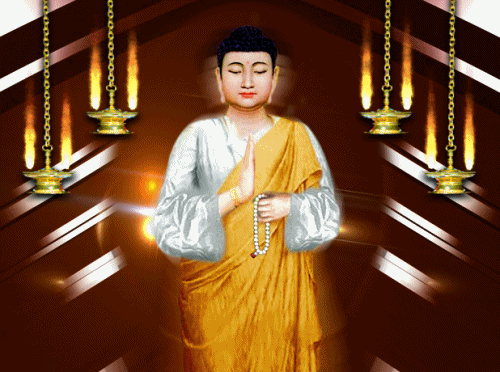
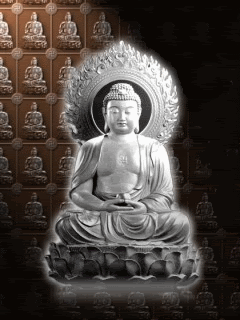
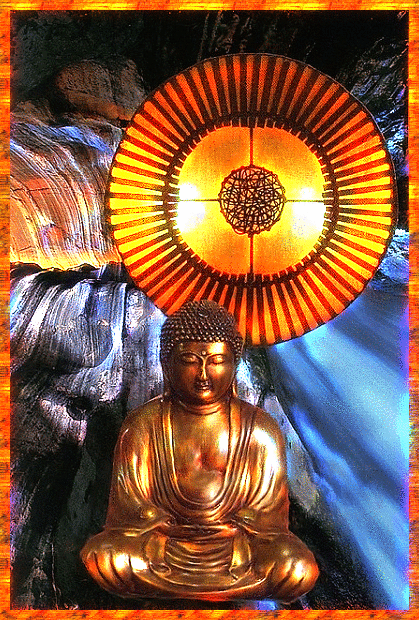
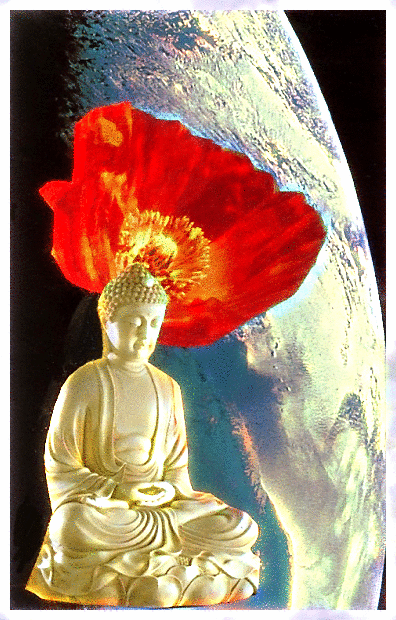
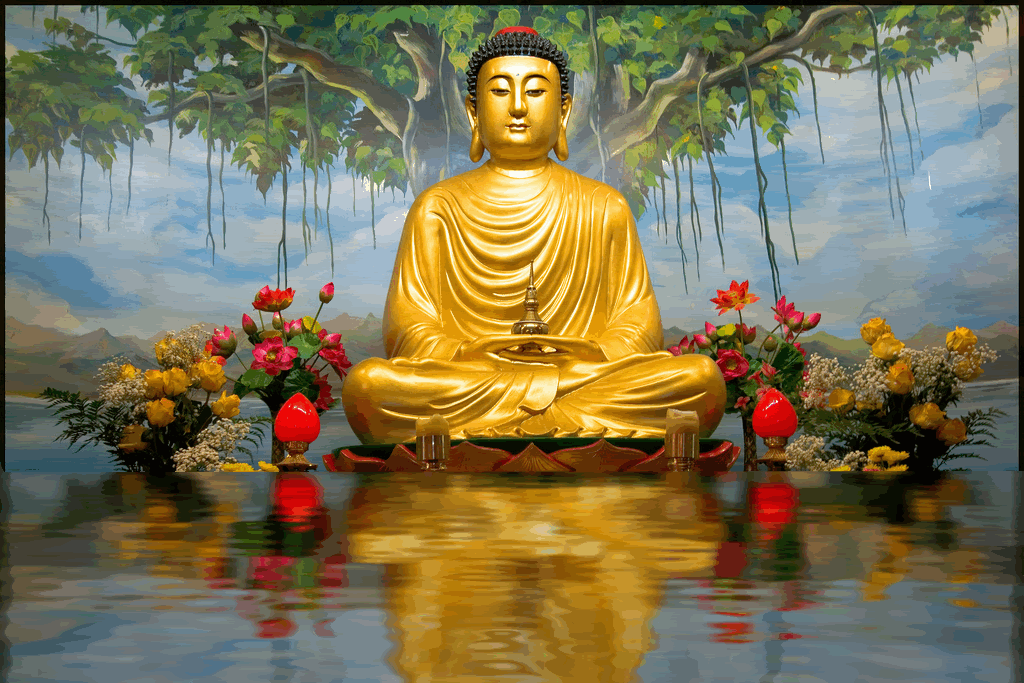



Top 10 detox foods
10 cleansing foods to get your body back on track
Recently
overindulged? Feeling a bit sluggish? Or just not looking your best? It
could be that your body is in need of a detox. Fortunately, there are
many foods around that can help counteract the effects of a toxic
lifestyle. Whether you want to lose weight, feel more energised, improve
your complexion or boost your mood, check out these top 10 foods to
cleanse your body and boost your health.
